SUSTAINABLE







































































































Business Chief magazine is an established and trusted voice with an engaged and highly targeted audience of 670,000 global executives

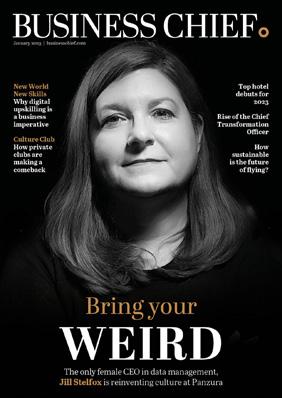
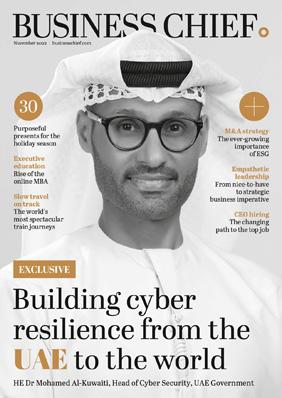







Digital Magazines
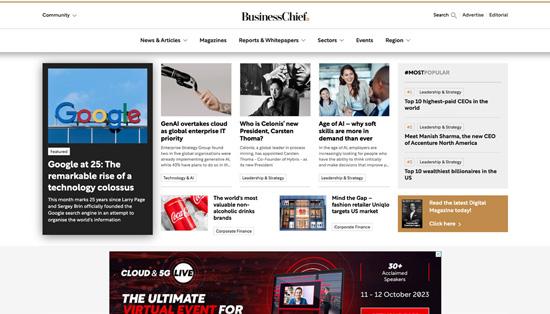
Website Newsletters
Industry Data & Demand Generation
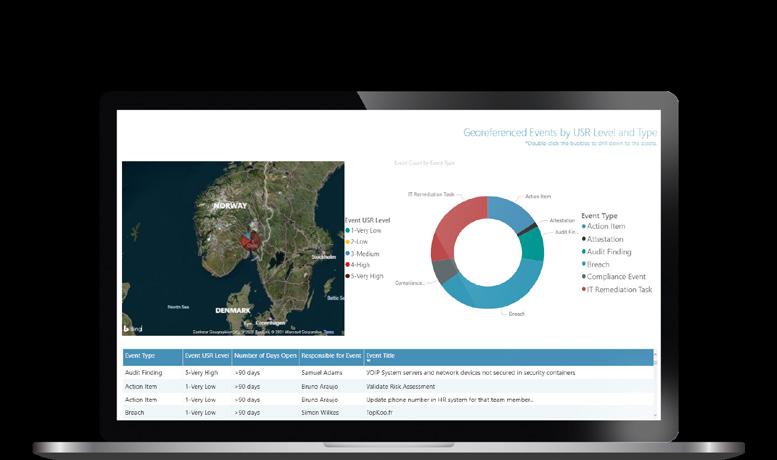
Webinars: Creation & Promotion
White Papers & Research Reports
Lists: Top 10s & Top 100s
Events: Virtual & In-Person
WORK WITH US

EDITOR-IN-CHIEF
SCOTT BIRCH
EDITORS
TOM CHAPMAN
KATE BIRCH
CHEIF DESIGN OFFICER
MATT JOHNSON
HEAD OF DESIGN
ANDY WOOLLACOTT
LEAD DESIGNER
SOPHIE-ANN PINNELL
FEATURE DESIGNERS
SOPHIE-ANN PINNELL
HECTOR PENROSE
SAM HUBBARD
MIMI GUNN
REBEKAH BIRLESON
JULIA WAINWRIGHT
ADVERT DESIGNERS
JORDAN WOOD
DANILO CARDOSO
CALLUM HOOD
VIDEO PRODUCTION MANAGER
KIERAN WAITE
SENIOR VIDEOGRAPHER
HUDSON MELDRUM
DIGITAL VIDEO PRODUCERS
ERNEST DE NEVE
THOMAS EASTERFORD
DREW HARDMAN
SALLY MOUSTAFA
PRODUCTION DIRECTORS
GEORGIA ALLEN
DANIELA KIANICKOVÁ
PRODUCTION MANAGERS
JANE ARNETA
MARIA GONZALEZ
YEVHENIIA SUBBOTINA
KENDRA LAU
PROJECT DIRECTORS
THOMAS LIVERMORE
MICHAEL BANYARD
JAKE MEGEARY
RYAN HALL
TOM VENTURO
STUART IRVING
JAMES BERRY
MARKETING MANAGER
KAYLEIGH SHOOTER
MEDIA SALES DIRECTOR
JAMES WHITE
JASON WESTGATE
MANAGING DIRECTOR
LEWIS VAUGHAN
CEO
GLEN WHITE

Transformation can be both a challenge and a privilege. Regular readers of Business Chief will note that this issue marks the start of a new chapter in the 100-issue history of our brand, as we expand to now include four regional editions for truly global coverage.
You are reading Business Chief UK & Europe, and from today you can also enjoy insights and executive success stories from Business Chief US & Canada. Business Chief Asia & ANZ and Business Chief Middle East & Africa.
These four editions combine into a comprehensive deep dive into the challenges and opportunities facing CEOs, founders and public sector leaders right now, and in the future.
From Generative AI to Gen Z, green finance to black swans, Business Chief 4.0 has you covered with exclusive interviews, roundtable discussions, and the latest research and reports.
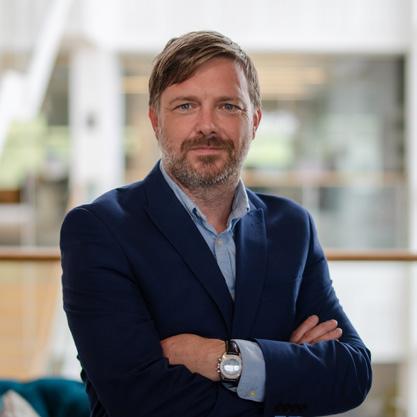
Striking a work-life balance, you will also see more Lifestyle content for our executive audience, especially on our reimagined websites.
Plus, there’s more to come, with two new titles joining the Chief portfolio soon. Exciting times.
SCOTT BIRCH Chief Content Officer, BizClikscott.birch@bizclikmedia.com

From Generative AI to Gen Z, green finance to black swans, Business Chief 4.0 has you covered

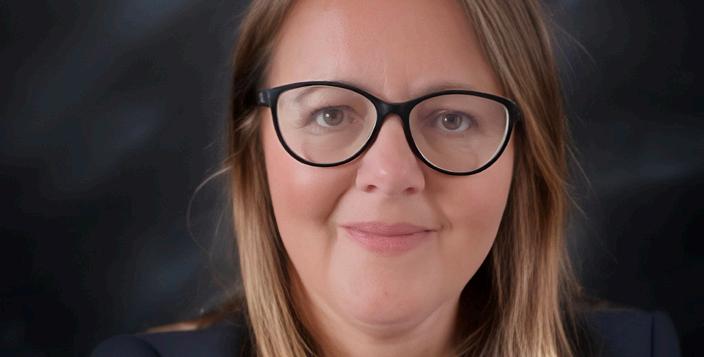

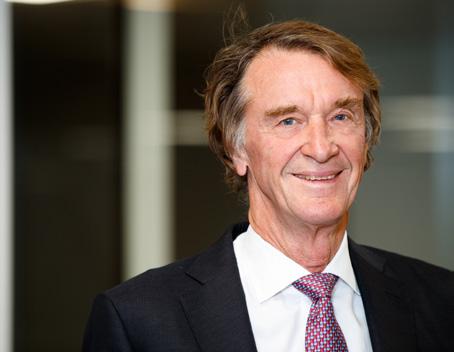
38 RADISSON HOTEL GROUP
Promoting sustainable travel with Radisson Hotel Group

56 PEOPLE
The endless benefits of putting your people first
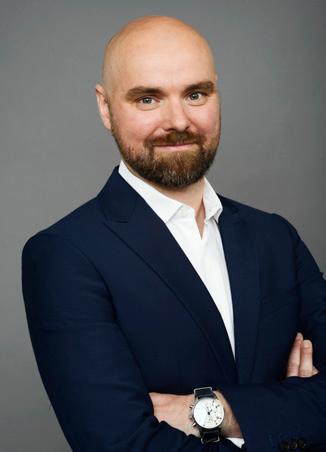
64 TECHNOLOGY
Why embracing generative AI has gone from ‘maybe’ to ‘must’
74 SUSTAINABILITY
Sustainability must become central to corporate strategy
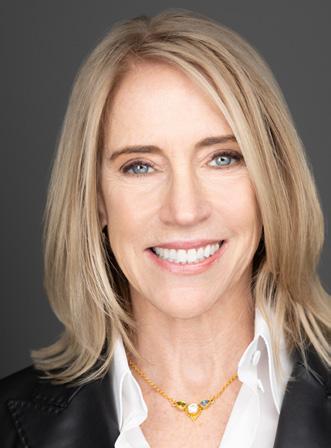
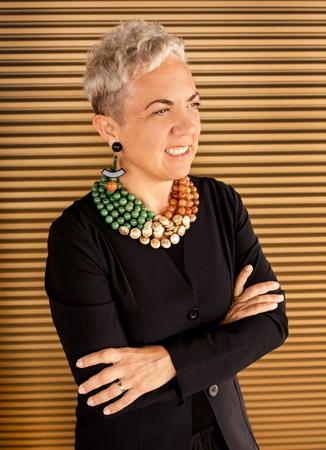
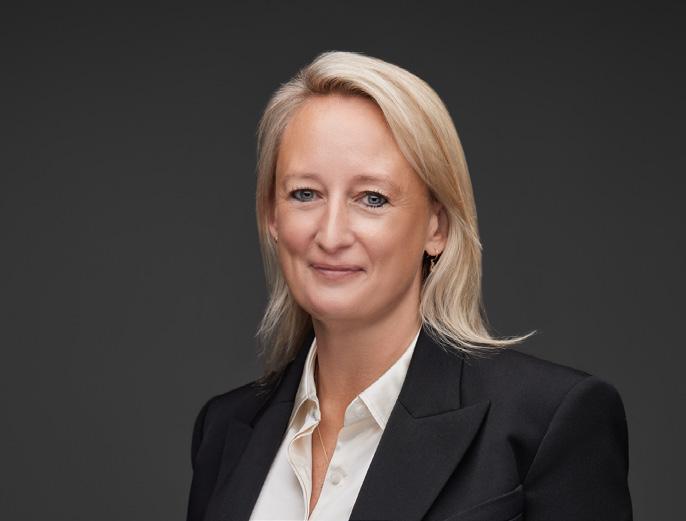
82 LEADERSHIP
The changing face and future direction of shareholder value
92 ACCENTURE
Enterprise architecture creating sustainable business value
110 LIFESTYLE
Is this the end of long-haul, first-class travel?
Volkswagen, the biggest carmaker in Europe, is leading an EV revolution on the Greek island of Astypalea. This Aegean paradise, which has around 1,300 inhabitants, is gradually being converted into a hub for smart, sustainable mobility. Already, a significant proportion of the population are regularly using the ASTYBUS shuttle service, while almost all new cars being registered on Astypalea are fully electric. Volkswagen continues to raise the bar when it comes to e-mobility, digital mobility solutions and green energy.



















Flying the flag for women in a male-dominated field
Marie Measures, Chief Digital Information Officer at Apex Group, outlines the importance of mentoring to achieve DE&I in tech
WRITTEN BY: TOM CHAPMAN
Tell us about your role with Apex Group
As Chief Digital Information Officer at Apex Group, I am responsible for defining technology strategy to deliver business goals and driving transformation across Apex Group’s IT functions globally, as well as executing digital innovation, cloud, data, cyber and modern workplace strategic plans.
What is the biggest challenge you face in your job?
Finding balance. There is always more demand than there is capacity to change. Even with infinite budget and resources, there is only so much change that an organisation can cope with before client service and operations are impacted adversely. I have to find a balance between keeping the existing technology estate, technology-enabled products and services working well, ensuring we are protecting data and meeting regulation, and driving innovation and change through the execution of our technology strategy.
Apex Group has tripled in size over the past three years. What have been the main drivers of that growth?
Apex Group has been on an exciting and unique growth journey – both through double-digit organic growth and also by making more than 40 acquisitions since 2017. This has enabled us to evolve into a global provider of data-driven financial
services, offering an unmatched range of solutions underpinned by innovative technology platforms. We now have more than 12,000 employees across 94 offices in 50 markets. I joined Apex Group via the acquisition of Sanne Group in 2022; the continued integration of businesses and systems, as well as keeping pace with this “hypergrowth”, are constant priorities for me and my team.
What was it like for you starting out as a woman in a male-dominated industry?
I have worked in the technology function across multiple industries and, in some, I was more often than not the only woman in the room. During my time as a consultant in the 1990s, I arrived at an office with two junior male colleagues, only for the customer to assume I was the team apprentice! These types of misconceptions were not uncommon in tech at the time and the sector still remains far too dominated by white, middle-aged men. However, moving into financial services there have been more senior female role models, which has helped me to rethink my value and leadership role I can play.
How important is mentoring when it comes to achieving diversity, equity and inclusion in tech?
Seeing the change is one thing, but what women often need is more hands-on help to assist them in their climb up the career ladder.
ABOUT MARIE
Marie Measures has worked in technology for the past three decades, spending more than 20 years in the finance sector. She has worked for a host of international institutions including Coventry Building Society and Capital One. More recently she was CTO at Sanne Group, prior to its acquisition by Apex Group, where she now serves as Chief Digital Information Officer.



Women at the start of their careers need to hear from those who are further along in their career journey. For me, it was a female mentor at the time I jumped from senior management to leadership which had an outsized impact on where my career went next.
I try to be disciplined when it comes to devoting enough time to focus on supporting other women; for example, working with school-age girls to explain the benefits of having a career in technology, improving financial literacy and showing them the multiple routes into the financial and tech industries, while also engaging with Apex’s own Women’s
Accelerator programme and mentoring female colleagues. It’s vital we don’t pull up the ladder behind us – and instead pass on our learnings to the next generation to show them there is a place for women in our industries.
I also believe it’s important that women in leadership positions give back by acting as allies to other groups whose ethnicity, age or sexual orientation may create challenges in their career. One of the key strengths of the team I have recruited at Apex Group is the diversity of thought and perspective offered by individuals with different life experiences and outlooks.
How exciting is the emergence of generative AI from a business perspective?
As a tool for the CIO, as with any other business lead, AI provides an opportunity to take manual, repetitive tasks away from key staff and allow them to concentrate on valueadd activities. Efficiency, productivity gains and additional protection, particularly in using AI in cyber tooling, helps in leading a function.
The introduction of AI into the business means the CIO needs to build teams, as well as defining policies and standards, to ensure safe and effective use of new technologies. While AI is a powerful tool which can be used to differentiate a business, if you don’t have good data or in-house expertise to validate the results it can lead to serious consequences.

What are your goals for the next 12 months?
I’ve got a big focus on data, cyber and automation, which is probably common with most IT execs. Building on foundational capabilities I will be working with my peers to identify ways we can develop software and data as a service products, both for our internal use in serving clients but also as technology products in their own right. Advances in data science and automation intelligence will allow us to improve productivity in data ingestion and improve security in sharing data with our clients, their investors and third parties such as regulators. Cyber threats are continually advancing so it is critical to stay one step ahead and evolve our security posture.
Sir Jim Ratcliffe is a man well accustomed to breaking records and topping tables, most notably as Britain’s richest person.
According to the Sunday Times Rich List 2023, Sir Jim’s net worth stands at an eye-watering US$37.5 billion, while his Ineos Group is a regular in the Fortune Global 500.
However, in recent months, this self-made billionaire has been making headlines for his interest in buying Manchester United, the team he supported as a boy.
At the time of writing there is rampant speculation that the club could be taken off the market but, were a multi-billion deal to be completed, it would be the biggest in football history.
Whether or not a takeover comes to fruition, Sir Jim’s interest in United goes to show he remains intent on broadening his enormous business empire, even at the age of 70.
Growing up in a council house in Failsworth, Greater Manchester, it’s fair to say Sir Jim did not have your typical billionaire’s childhood.
His parents worked steady jobs, his mother in an accounts office and his father as a joiner, but there was certainly no vast fortune for him to inherit.
Despite this modest upbringing, a young James Ratcliffe was fast developing an interest in business and industry, and exhibited a passion for engineering at Beverley Grammar School following his family’s move to Yorkshire when he was 10.
His intelligence was plain to see and earned him a spot at the University of Birmingham, where he studied chemical engineering, before starting his working career with Esso.
Sensing, however, that his journey in education was incomplete, Sir Jim then attended London Business School to earn his MBA in finance.
WE CAME OUT OF THAT [THE FINANCIAL CRASH] QUITE WELL. WE MADE CHANGES, REDUCED COSTS AND CAME OUT OF IT
BETTER THAN MANY COMPANIES , CERTAINLY IN OUR INDUSTRY

Feeling confident he possessed the tools necessary to succeed in business, Sir Jim worked for a while at Courtaulds, the fabric, clothing and chemicals manufacturer, prior to boldly joining US private equity firm Advent International.
It was here that Sir Jim learned the art of making big-money investments and, in 1992, he teamed up with chemist Dr John Hollowood to purchase a chemicals division from BP in what was a huge US$50m deal –putting his family’s finances on the line.
But it proved a smart move; when the newly-formed Inspec floated on the London Stock Exchange in 1994, it was already valued at US$125m. The organisation subsequently acquired BP’s equivalent site in Antwerp, Belgium.
Ineos continues to make a name for itself in the world of sport and has its own cycling and sailing teams. In Formula 1, the company name adorns the cars of Mercedes pair Lewis Hamilton and George Russell.

In 1998, Sir Jim decided to leave Inspec and launch his own chemicals company called Ineos, signalling the dawn of a new era. It would prove to be the smartest move of his career and one that would make him a billionaire businessman.
And, in what was another ambitious manoeuvre – not to mention a sign of things to come – Ineos subsequently bought the Antwerp chemicals site from Inspec for more than US$100m.
Over the ensuing years, the firm completed a raft of deals to acquire unwanted subsidiaries from various big companies, ultimately making Ineos a heavyweight in itself. When considering these acquisitions, executives were asking

We are INEOS, and we’re taking on a challenge.
The most notable such deal came in 2005, when Ineos took over Innovene from BP for a sum of around US$6.25bn. Ineos’ sales volume was immediately multiplied and its workforce doubled.
As was the case for countless businesses in manufacturing and beyond, the global financial crash resulted in a substantial decline in revenue and profitability, but Ineos emerged relatively unscathed.
“We came out of that [the downturn] quite well,” said Sir Jim, speaking back in 2011. “We made changes and reduced costs, and I think we came out of it better than many companies, certainly in our industry.
“Many people did not survive that downturn – the worst, certainly, that we have seen in our lifetimes. Today, the company is in much, much better shape.”
In a bid to avoid paying extortionate taxes, Ratcliffe moved Ineos’ headquarters from the UK to Switzerland, although a move back to British shores followed in 2016.
Today, Ineos is a true giant of the chemical industry. While a lack of consumer products sold directly to the public means the name Ineos is not particularly well known, the firm is involved in the production of countless everyday items including medicines, household goods and even computer systems.
If Sir Jim was to one day buy Manchester United, they would not be alone in benefitting from his riches.
Over the past few years, Sir Jim’s business ventures have seen him spread his wings across the world of sport, initially with the takeover of Swiss club FC Lausanne-Sport in 2017.
Then came a move into sailing through the formation of Ineos Team UK alongside Ben Ainslie, followed up by the purchase of the Team Sky cycling franchise made famous by riders including Bradley Wiggins and Chris Froome, renaming it Team Ineos (now Ineos Grenadiers).
Another ambitious foray into football came in 2019 with the takeover of French Ligue 1 outfit, Nice.
Sir Jim has been linked with various big-name English teams and was last year unsuccessful in his attempts to buy Chelsea, losing out to a consortium led by American businessman Todd Boehly.
The Ineos Group’s attempt to buy Man United reportedly placed a higher value on the club than that of Qatari banker Sheikh Jassim, relative to the size of the stake it intends to acquire.
If Sir Jim does eventually end up at the helm, it would surely solidify his reputation as one of the most influential businesspeople in the UK, Europe and beyond.









Knowledge Partners







Discover the companies leading the way, setting the pace and inspiring global business change. READ NOW


Business Chief takes a look at the trailblazing companies in the UK & Europe which are going the extra mile to run more sustainable operations
 WRITTEN BY: TOM CHAPMAN
WRITTEN BY: TOM CHAPMAN
Businesses across the globe are becoming increasingly conscious of the impact their activities are having on the environment around them. Gone are the days when companies could simply appear ‘responsible’ by setting a host of climate-related goals they intended to meet in the future.
Modern-day customers and stakeholders alike want to see meaningful results – and will hold decision makers to account. However, many firms are showing unwavering commitment to the cause, going the extra mile to reduce their carbon footprint. If every organisation had a similar attitude to these sustainability leaders, together they could really make a difference.
Headquaters: London, England
CEO: Bob Moritz
Number of employees: 327,000
Driven by a desire to build trust in society, solve important problems and deliver quality in assurance, advisory and tax services, PwC consists of a network of firms in 152 countries. A feather in the company’s cap is its Centre for Nature Positive Business, which unites more than 500 nature specialists from across the business. Bringing together knowledge in biodiversity, water, forestry, regenerative agriculture and geospatial analysis, the centre is accelerating the global transition to a nature-positive and net-zero future.

Headquaters: Paris, France
CEO: Aiman Ezzat
Number of employees: 360,000
Capgemini is a global leader in partnering with companies to transform and manage their processes, guided every day by its purpose of unleashing human energy through technology for an inclusive and sustainable future. The Parisbased firm can be considered a responsible and diverse organisation, employing more than 360,000 people across more than 50 countries. With 55 years of history and deep industry experience under its belt, Capgemini is trusted by clients to address the entire breadth of their business needs.

Headquaters: London, England
CEO: Carmine Di Sibio
Number of employees: 365,000
EY exists to build a better working world, helping create long-term value for partners and people in more than 150 countries. Enabled by data and technology, and working across assurance, consulting, law, strategy, tax and transactions, diverse EY teams try to answer the big questions facing our society today. Having provided ESG services for more than 20 years, the business utilises deep technical skills across a breadth of areas to ensure clients can create value by running more sustainable operations.


Headquaters: Dublin, Ireland
CEO: Julie Sweet
Number of employees: 732,000
With Julie Sweet – one of the world’s most powerful businesswomen –at the helm, Accenture is a firm driving change and creating meaningful value. The company’s approach is to incorporate sustainability into every facet of its work for the benefit of all stakeholders. Accenture offers solutions that mitigate carbon emissions across various domains, such as buildings, transport and even entire cities, while simultaneously promoting social and economic advantages. Its people work with more than 9,000 organisations to incorporate sustainability throughout the value chain.
Headquaters: London, England
CEO: Joe Ucuzoglu
Number of employees: 415,000+
For more than two decades, Deloitte has helped organisations make progress towards delivering sustainable value for their stakeholders. Using innovative approaches, digital solutions and lessons learned from its own journey, the firm serves a wide variety of clients as they redefine strategies, embed sustainability into their operations, meet disclosure and regulatory requirements, and accelerate transformation. Deloitte also continues to invest in outstanding talent from diverse backgrounds, empowering them to achieve their goals and fulfil their potential.

Headquaters: Vevey, Switzerland
Group CEO: Ulf Mark Schneider
Number of employees: 273,000


As the world’s largest food and beverage company, Nestlé is driven by a simple aim: to unlock the power of food to enhance the quality of life for everyone, both today and for generations to come. To deliver on this, Nestlé serves its customers with passion and a spirit of excellence, offering products and services for all stages of life. With history stretching back to 1866, Nestlé now employs around 273,000 people and operates in almost every country.

Headquaters: London, England

CEO: Hein Schumacher
Number of employees: 127,000
Unilever is noted as a sustainability leader and is making exciting progress with the intention of replacing plastic bottles with paper. The business has a clear view of its social and environmental obligations and is committed to developing plant-based alternatives to fossil-fuel-derived cleaning products and packaging. Further key aims are to reach net-zero carbon emissions by 2039 and raise standards of living across the globe by employing 93% of leaders from local communities. Unilever employs no less than 127,000 people in 190 different countries.
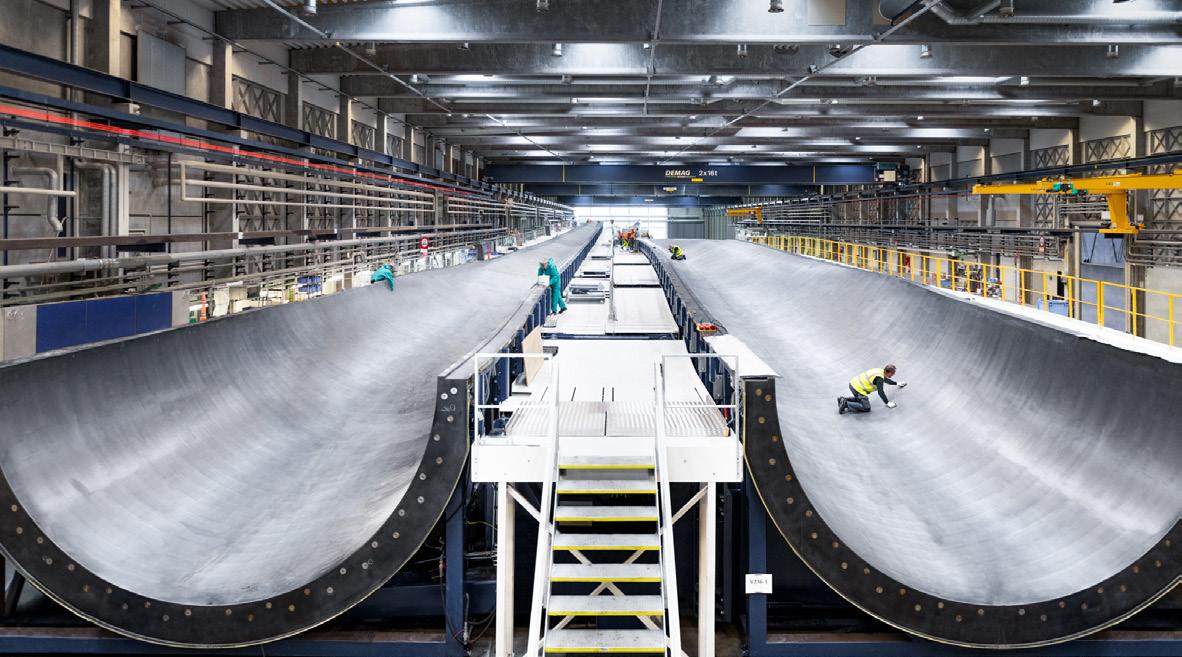
Headquaters: Aarhus, Denmark
CEO: Henrik Andersen
Number of employees: 28,000+
Vestas Wind Systems A/S is the world's largest wind turbine manufacturer and wind turbine service provider. With a vision to become the global leader in sustainable energy, all its activities revolve around the development and deployment of relevant energy solutions. For Vestas, sustainability is grounded in its four corporate values: simplicity, collaboration, accountability and passion. It also translates as reducing or eliminating negative environmental and social impacts, while maximising the value provided to customers, employees, shareholders, suppliers, local communities and the wider planet.
Headquaters: Munich, Germany
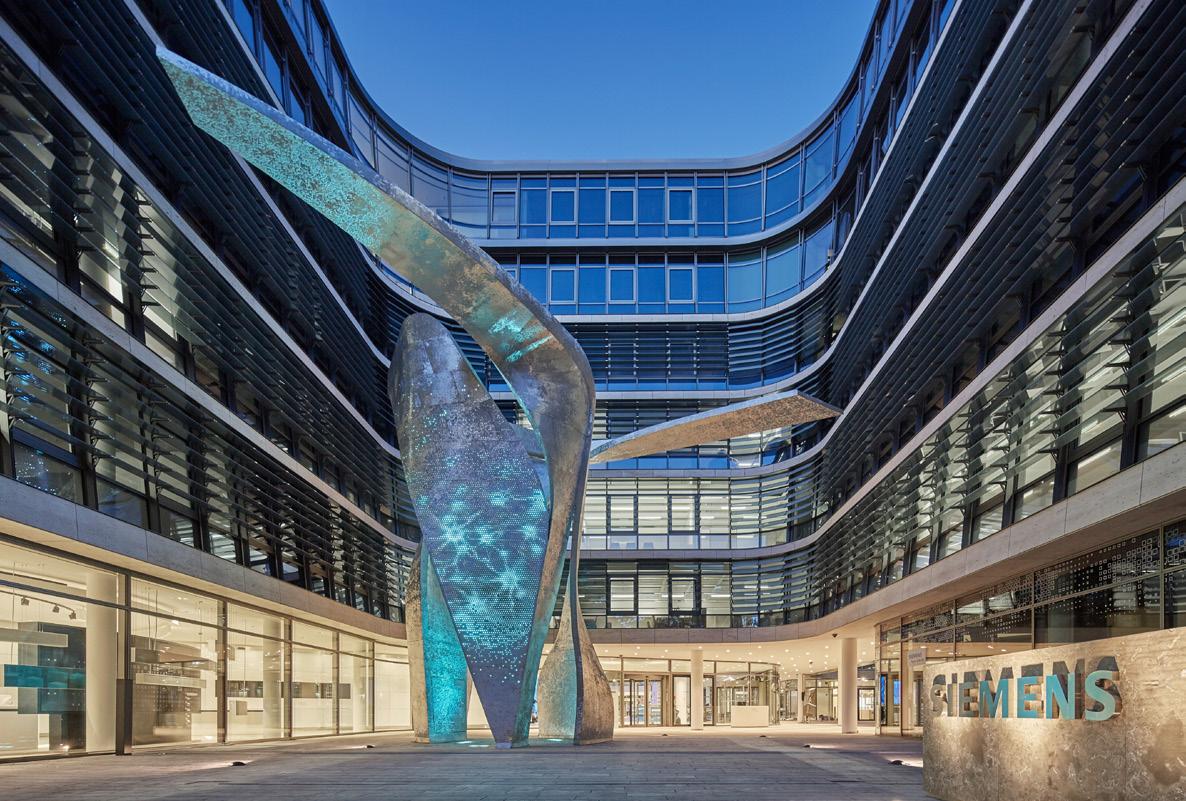
CEO: Roland Busch
Number of employees: 311,000
Technology giant Siemens focuses on industry, infrastructure, transport and healthcare. From resourceefficient factories and resilient supply chains, to smart buildings and cleaner transportation, the company creates technology with purpose – adding real value for customers. What’s more, by combining the real and digital worlds, Siemens empowers customers to transform their industries and markets, thus transforming the everyday for billions
of people. Sustainability is a key part of Siemens' strategy, as demonstrated by the DEGREE framework which takes its ESG commitment to the next level. This consists of a 360-degree approach for all stakeholders, including customers, suppliers, investors, people, society and the planet as a whole. In addressing the three strands of ESG, Siemens is building a better future that helps the organisation stay within planetary boundaries and foster a culture of trust, empowerment and growth, while supporting inclusive economic opportunities and ensuring its people are prepared for whatever the future holds.


 Siemens Xcelerator Launch 2022
Siemens Xcelerator Launch 2022



Headquaters: Rueil-Malmaison, France
CEO: Peter Herweck

Number of employees: 130,000
Founded in 1836, Schneider Electric's purpose is to empower everyone to make the most of our energy and resources. Sustainability is at the heart of company activities. To demonstrate this, Schneider Electric has six key commitments: to act for a climate-positive world; to be efficient with resources; to live up to its principles of trust; to create equal opportunities; to harness the power of all generations; and to empower local communities. The business is currently helping 1,000 suppliers to deliver on their climate-positive goal of reducing CO2 emissions by 50% by 2025. Through Schneider Electric’s dedicated decarbonisation programme, offering training, expert support and solutions, partners get everything they need to make meaningful progress. DE&I is also a top priority for the organisation, with 130,000 employees spanning five generations and 182 nationalities in 108 countries. As of December 2022, women made up 34% of the workforce and 45% of the board of directors.


After spending more than 12 years at Radisson Hotel Group, Inge Huijbrechts, Global Senior Vice President of Sustainability, Security and Corporate Communications, has witnessed first-hand how the company has developed into a business that is pioneering sustainability in the hospitality industry.

Now in 95 countries, Radisson Hotel Group (RHG) is a fast-growing hotel company, with over 1,200 hotels in operation and development. The group is also home to ten amazing brands that span economy stays, all the way up to luxury lifestyle options, as well as hotels ranging from those with 50 rooms to others that have thousands.
With even more growth plans for the future, RHG has set out a defined five-year plan with 29 initiatives. “The group has a very clear direction of where we are going in the future,” Huijbrechts says. “As a group, we’re focused on our continued expansion, while ensuring that we’re always improving our guest experience and exceeding their expectations. It’s also important for us to be an employer of choice as we have a lot of exciting roles to fill in the future.”
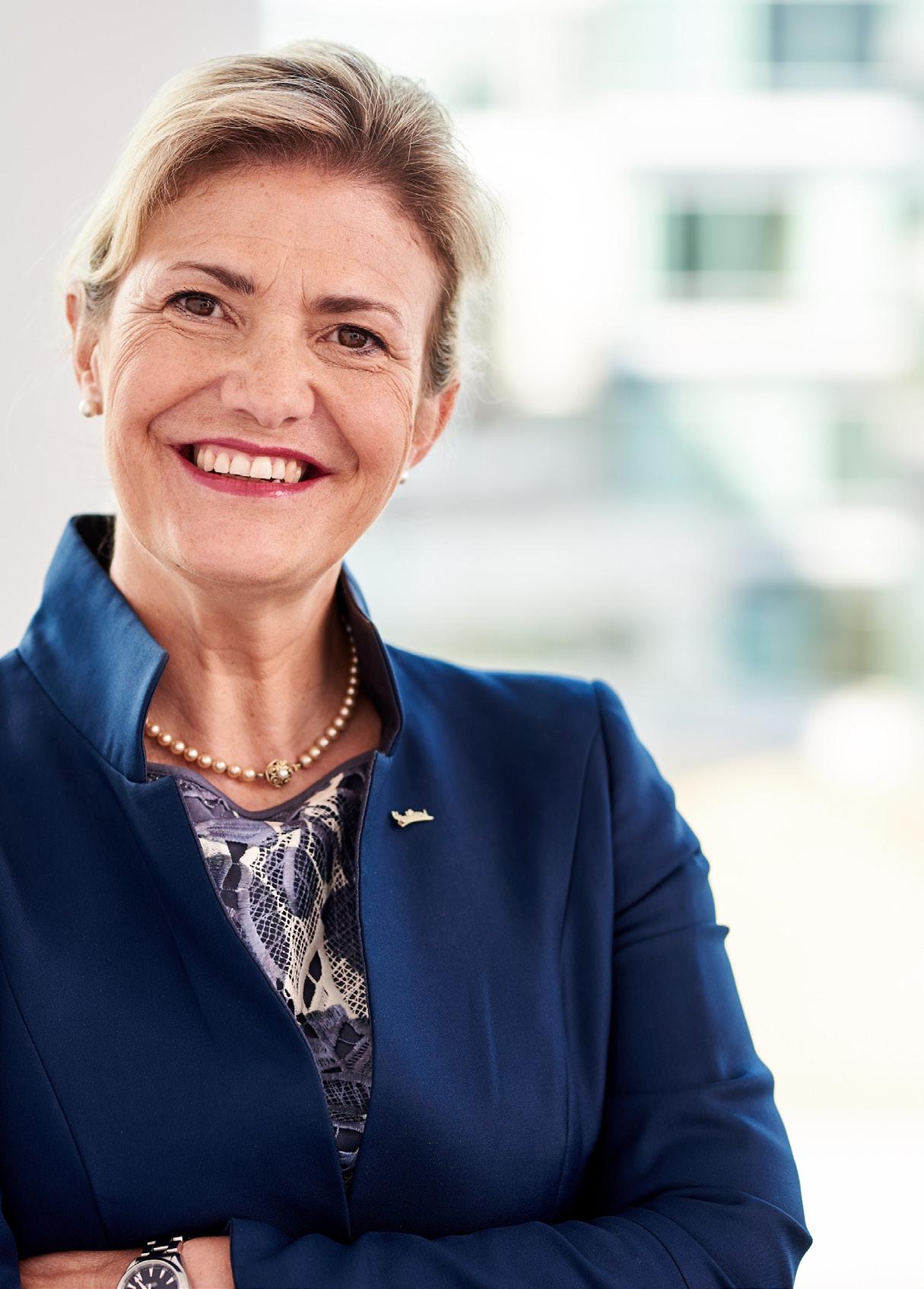
Although RHG has set a number of targets to boost its own sustainability journey, the group has also made a number of strategic partnerships to ensure it’s helping the industry as a whole progress. “We are part of some key associations, such as the Sustainable Hospitality Alliance, the World Travel and Tourism Council (WTTC), and the Energy and Environment Alliance to ensure we’re playing our part in helping the hospitality sector become more sustainable,” Huijbrechts says. “Each organisation has its own strengths to occupy a bigger ecosystem of change. As

“The Hotel Sustainability Basics programme is a great way of getting all the hotels on the same page to start their sustainability journey”
INGE HUIJBRECHTS GLOBAL SVP SUSTAINABILITY, RADISSON HOTEL GROUP
RHG wants consistency in sustainability, the business ensures it pulls together resources – even from its competitors – to make tools available for the industry and to drive a more sustainable, equitable future.”
With Scandinavian roots, sustainability and responsible business have been at the top of RHG’s agenda for a long time, centred around three main pillars: Think People, Think Community and Think Planet.

Think People ensures the group is looking after and taking care of people in its hotels and supply chain, Think Community works to safeguard those in the community including individuals in underprivileged groups, and the Think Planet pillar focuses on minimising the group’s footprint, while forging strong relationships with suppliers.
“Our work with the community focuses on ensuring that our hotels are engaged in the community,” Huijbrechts says.
“It’s not just a matter of making donations, but it’s also a matter of making sure that





Inge Huijbrechts is Global Senior Vice President Sustainability, Security and Corporate Communications for Radisson Hotel Group - developing the Sustainability and Safety and Security programs in the Group’s 1,200+ hotels in operations and development in 95+ countries. Together with her team, she lays out the strategy for Responsible Business from build to operations and keeps employees globally engaged in everyday Responsible Business actions.

In April 2022, she was one of the key leaders involved in the definition and launch of the Hotel Sustainability Basics, an initiative to set a common, clear and transparent definition of hotel sustainability to drive responsible travel & tourism.
GLOBAL SVP SUSTAINABILITY, RADISSON HOTEL GROUP
“We have defined our ‘Build Planet’ guidelines, which focus on the highest standards of sustainability available”
through the hotel business itself, we are supporting local communities through employability opportunities.”
“We work in many countries to create employability opportunities, either for jobs directly in our hotel in partnership with our hotels or other hotels in the destination, to encourage more people to continue both their personal and professional development. Sometimes, when underprivileged groups go through an employability programme, they’re able to get a job straight away, but other times, they realise they can pursue a hospitality management course, for example, and start higher up the ranks.”
However, the main focus is the group’s net-zero transformation. In 2022, RHG pledged to become net zero by 2050 and has since published approved sciencebased targets. Huijbrechts explains that these initiatives put RHG among the biggest
companies in the world with concrete net-zero targets.
Additionally, since the COVID-19 pandemic, RHG has pledged to reduce its absolute carbon emissions by 46% – almost cutting them in half.
Huijbrechts explains that RHG is taking a number of steps towards reaching its net zero targets, including prioritising renewable energy and electricity. The business also operates as an ‘asset light’ company, which means the group doesn’t own any of the buildings that it operates in.
What’s more, to improve its supply chain, the business began work with the sustainable ratings company, EcoVadis to acquire a rating. Initially, RHG was certified with a silver level and is now close to obtaining gold. This tool enables RHG’s procurement teams to focus more on responsible sourcing while checking that its regional and main suppliers meet the EcoVadis evaluation.

46%
Since the COVID-19 pandemic, RHG has pledged to reduce its absolute carbon emissions by 46%
As RHG doesn’t own any of its hotels, the companies that do are among a key group of stakeholders for the business, and approximately one-third of RHG is a growing franchise. “With external parties, we focus on renewable energy,

green operations and green buildings,” Huijbrechts says. “Our messaging towards owners is specifically about the net zero transformation and how they can green the buildings with our support.
“We have defined our ‘Build Planet’ guidelines which focus on the highest standards of sustainability available to bring
buildings up to the standards of BREAM, depending on where they are in the world. Hotel owners can then choose one of these certifications directly, to ensure any asset they have in their portfolio will be BREAM certified, for example.”
Hotels that are unsure of how to navigate this can use the Build Planet guidelines as
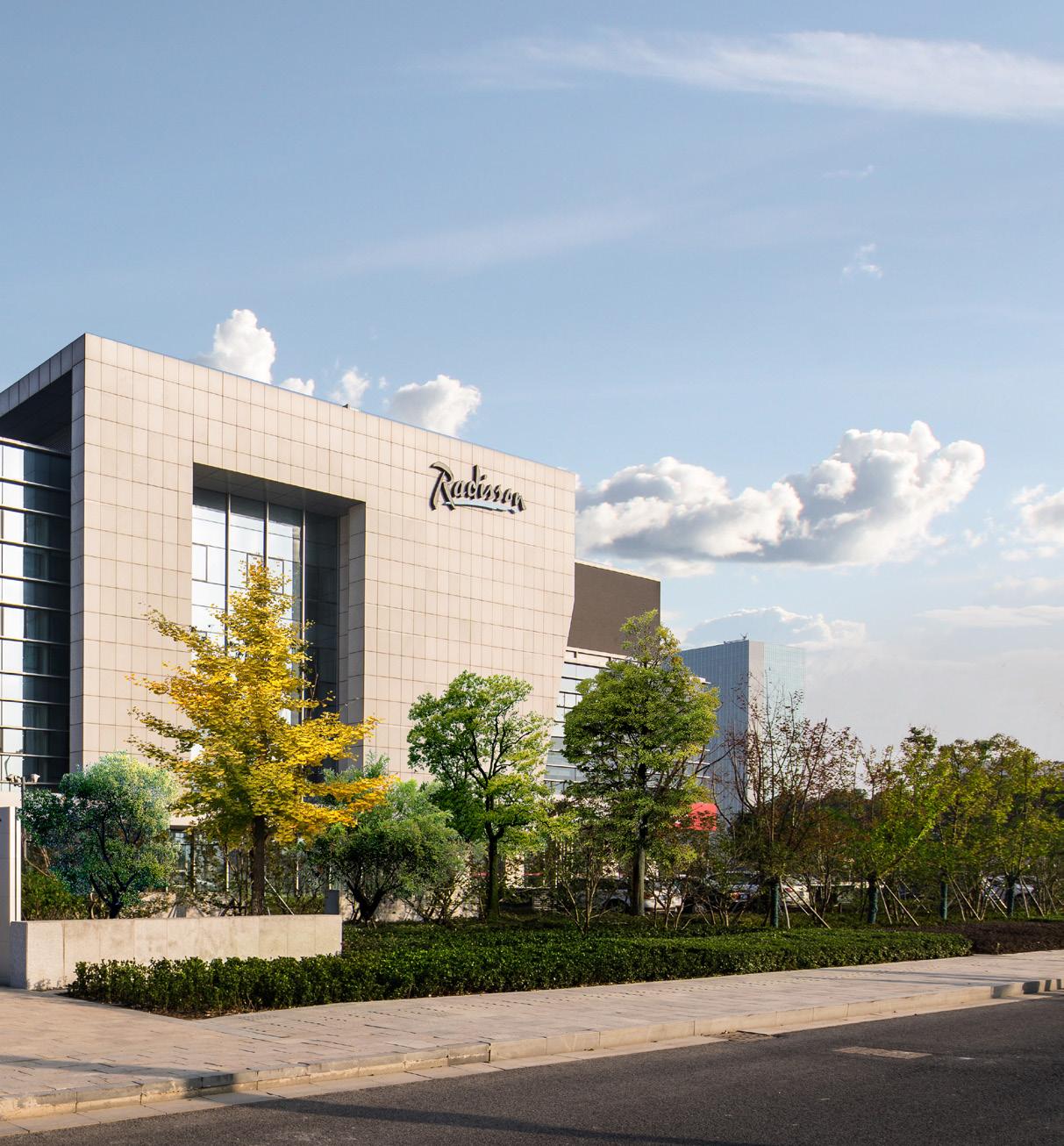
“With external parties, we focus on renewable energy, green operations and green buildings”
INGE HUIJBRECHTS GLOBAL SVP SUSTAINABILITY, RADISSON HOTEL GROUP
a step-by-step reference guide on how to achieve these standards. Owners are also supported by RHG with training options.
RHG’s other key stakeholder group is its employees. “We have a very active network of employees engaged in sustainability,” Huijbrechts says. “First of all, we have two key training platforms available to everyone – one is leading responsible business and the other is living responsible business. These are both part of a new hire orientation as well as a repetitive training, meaning all employees are aware of sustainability targets and are engaged in different campaigns.”
Last but not least, Huijbrechts discusses the customers, as stakeholders. “Year on year, surveys highlight that the demand for sustainable travel is increasing,” she says. “However, it’s also highlighted that customers don’t necessarily know what
it means for a hotel to be sustainable, and how to recognise them.”

To counter this issue, RHG launched the ‘Hotel Sustainability Basics’, in 2022, together with WTTC and the Sustainable Hospitality Alliance. The Hotel Sustainability Basics was formed by a number of different parties agreeing to a set of twelve criteria that a hotel needs to fulfil in order to market itself as sustainable. The programme marks the

starting point of a hotel’s sustainability journey and is linked to a verification programme to eliminate any potential greenwashing.
“The Hotel Sustainability Basics programme is a great way of getting all the hotels on the same page to start their sustainability journey,” Huijbrechts explains. “We also communicate to our guests about this, so when they see the logo, they’ll know that they’re staying at a hotel they can trust is sustainable.”

GLOBAL SVP SUSTAINABILITY, RADISSON HOTEL GROUP
“The group has a very clear direction of where we are going in the future”
Number of employees
Although hospitality is a diverse industry by nature, RHG has still made it a focal point to prioritise DEI initiatives. To do so, the group promotes local talent and encourages more women to take senior leadership positions. The group has pledged to reach a 50/50 gender split in senior leaders by 2050.

“We need to show women that we do support them by providing them with
the right encouragement, mentors and educational tools, but we also need to build their confidence in knowing that they can have a healthy work-life balance,” Huijbrechts remarks.
In doing so, Huijbrechts explains that the group has “taken away some rules” to ensure the hiring process is fair and inclusive. For example, RHG used to have an unwritten rule in which new General Managers were positioned
in challenging, more remote locations, which can be difficult for those raising a family. Realising this, the group removed the rule, to ensure every candidate and employee had a fair chance of reaching success. Through these operational changes, RHG has seen an increase in the number of women joining the company and is confident that this will continue.
Another incentive added to attract more women to join the business was RHG’s
move to expand paid maternity leave in certain areas, for example, in the UAE. The group also had the first-ever female General Manager in Saudi Arabia, who was a Saudi native. “This was a groundbreaking achievement,” Huijbrechts exclaims. “Before we hired her, we actually needed to check behind the scenes with the government to ensure we were legally allowed to do so.”

By employing just one woman from Saudi Arabia into a leadership position, more women were encouraged to take similar roles. Now, more than 200 women are in leadership positions in Saudi Arabia, something that wasn’t possible before.
In the future, Huijbrechts and RHG look forward to creating even more groundbreaking revelations, both in terms of DEI and sustainability, to ensure the business continues on as an industry leader.






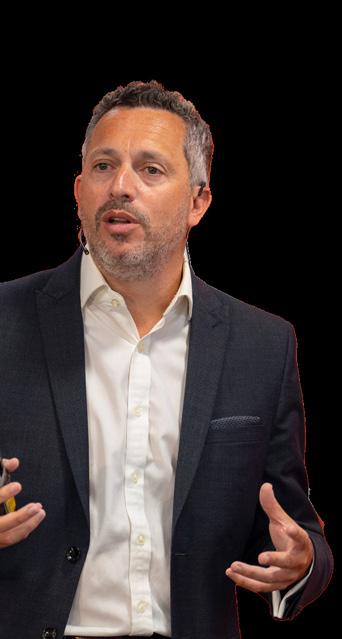
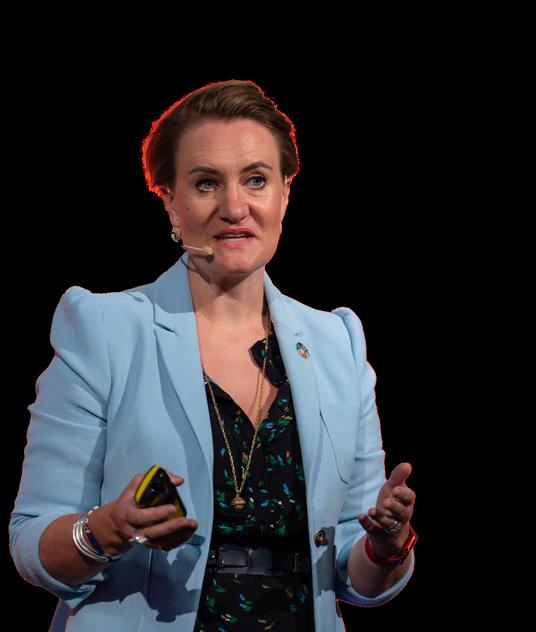
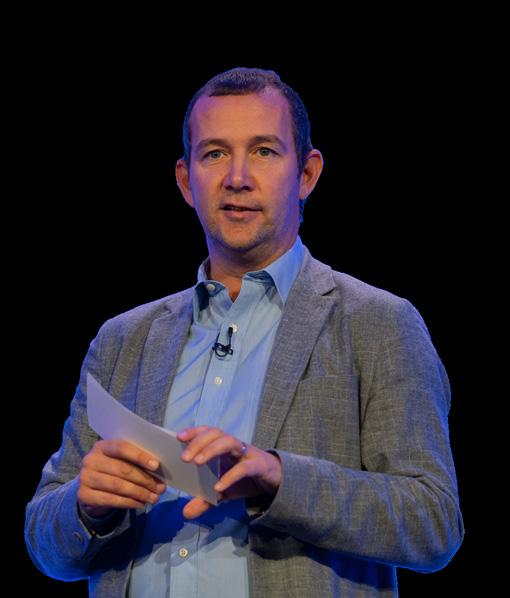
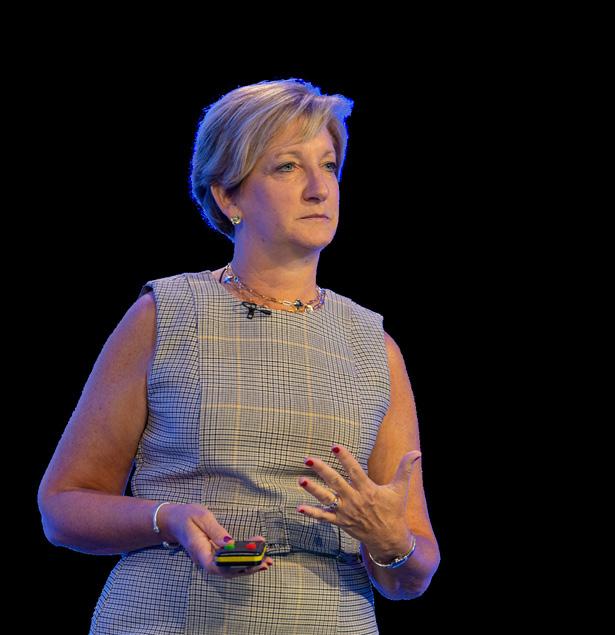
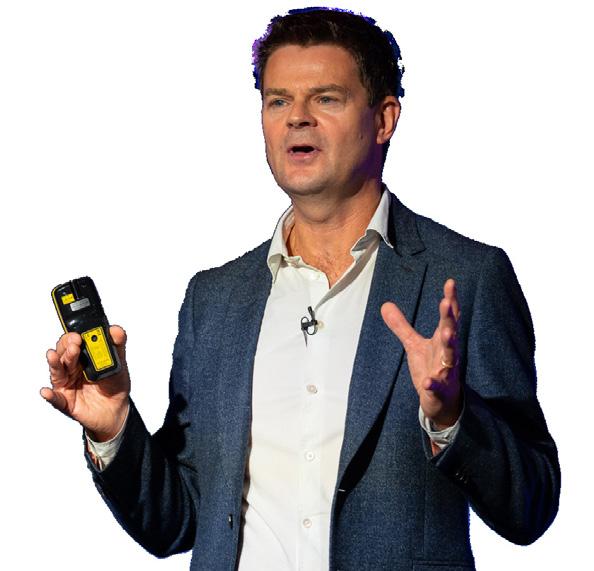








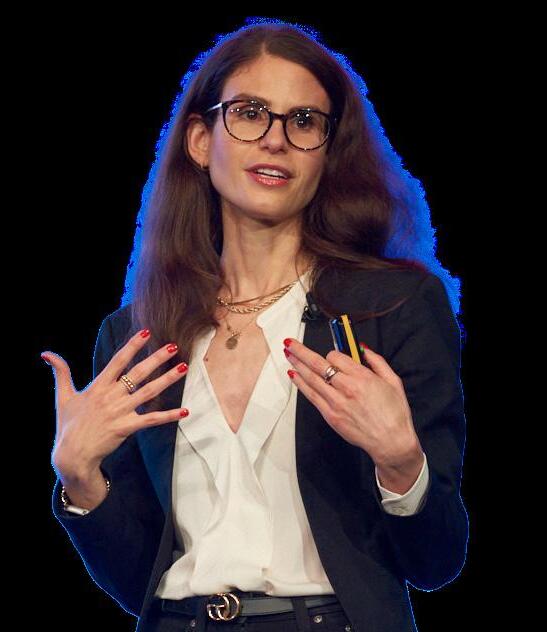


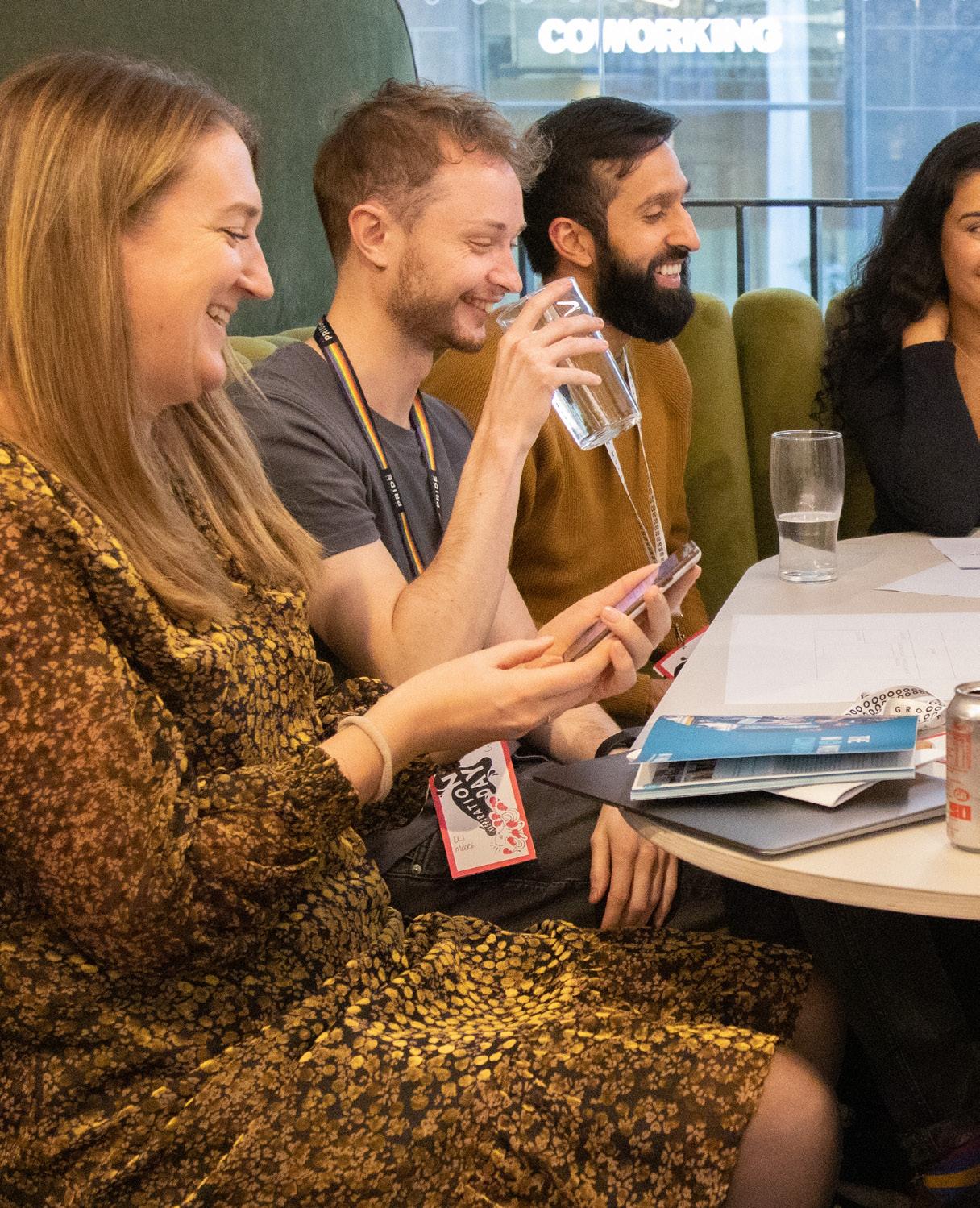
After an unsettling few years for employees, adopting a people-first philosophy is fast becoming more important than ever before
WRITTEN BY: TOM CHAPMAN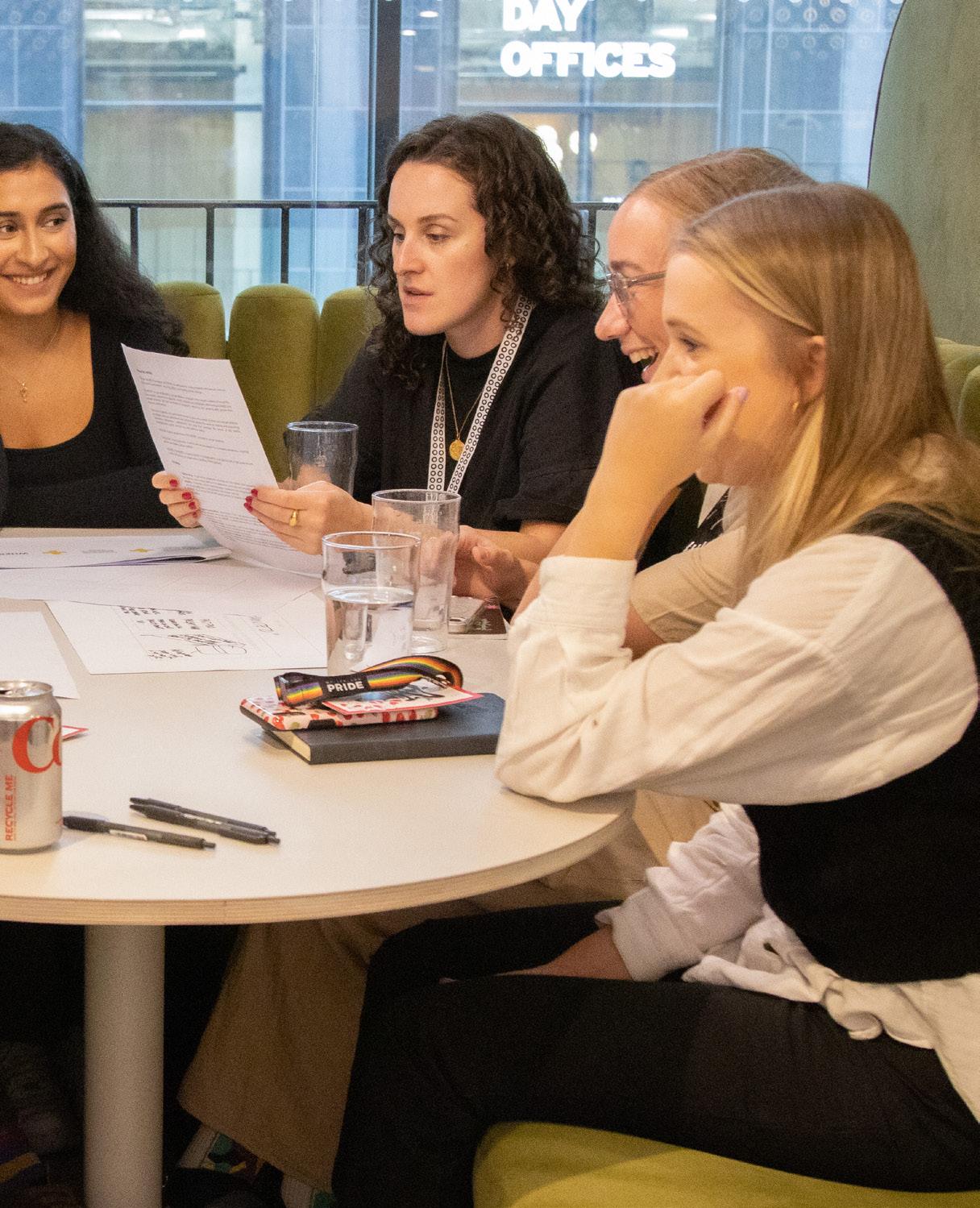
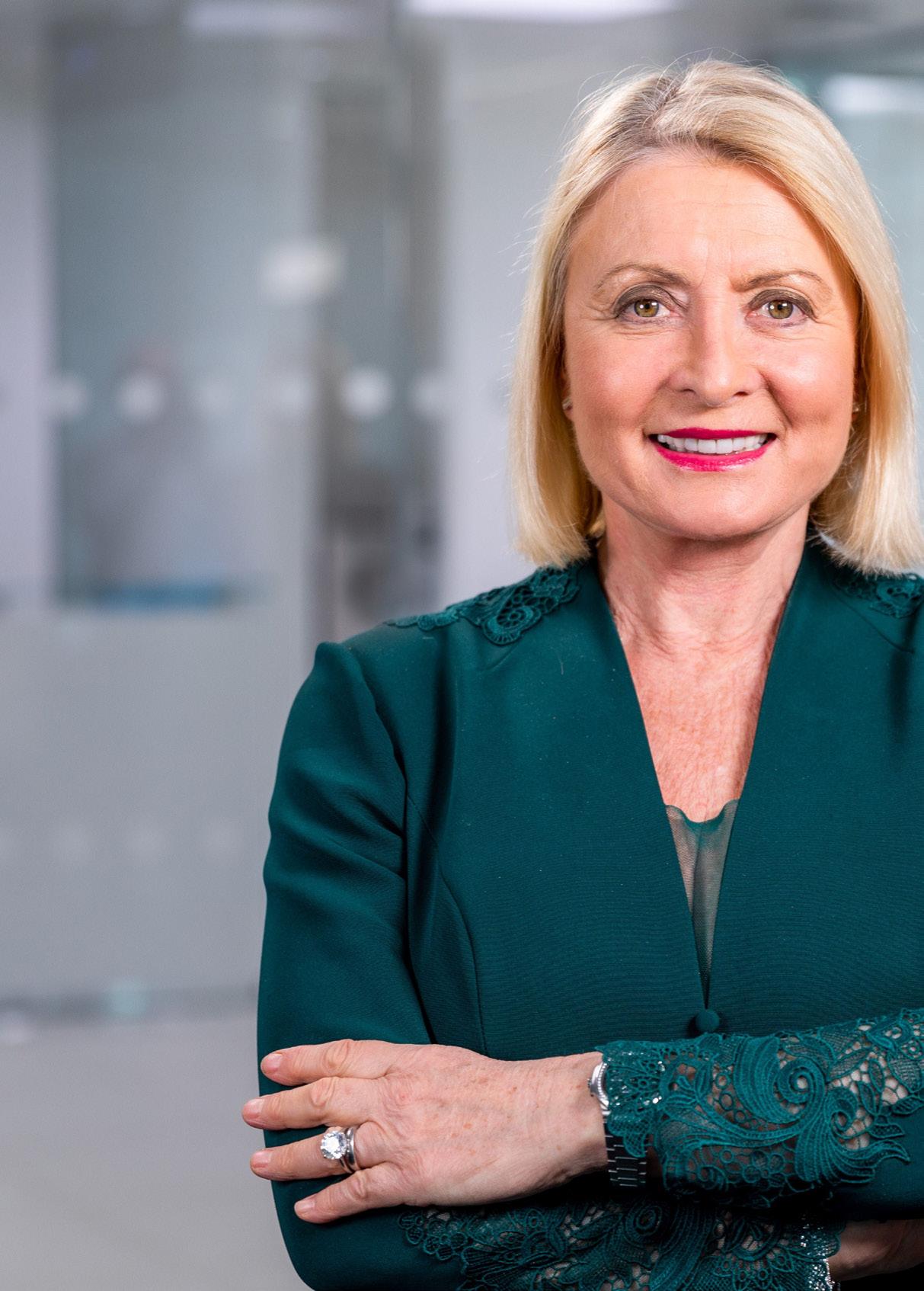 Sheila Flavell COO of FDM Group
Sheila Flavell COO of FDM Group
It has taken a pandemic and an ongoing costof-living crisis for countless companies to finally realise the importance of looking after their people.
COVID-19, in conjunction with the stay-athome orders that followed, provided many employees with the impetus to make longoverdue decisions about the direction of their careers, triggering a trend which became widely known as the Great Resignation.
Feelings of discontent were then amplified as spiralling inflation and general economic uncertainty began to eat into pay packets, prompting workers to ask whether it was time to seek pastures new.
All this means senior executives, managers and HR teams face a monumental challenge to keep their people happy which, according to numerous studies, is a key ingredient when it comes to boosting productivity and adding to the bottom line.
Back in 2019, researchers from the University of Oxford studied BT call centre workers over a period of six months to gauge the impact of happiness on productivity – and their findings were pretty convincing. Happy workers not only made more calls, but also achieved 13% more sales than their unhappy colleagues, without putting in any extra hours. Similarly, the University of Warwick’s Department of Economics concluded last year that happiness made people around 12% more productive.

The logical solution for businesses worried about retaining their staff is to implement a culture where people take priority over profit.
The case for a people-first culture

C-suite employment trends over the past few years suggest companies are catching on to the importance of implementing a people-first culture.
Chief People Officer is, without doubt, one of the fastest-growing leadership roles in the world, with giants like Apple, Zebra Technologies and Papa Johns among those to announce hires in recent months.
In fact, LinkedIn’s Jobs on the Rise 2023 lists for the UK and US – which ranked roles based on growing demand over the previous five years – saw CPO place 10th and 15th place respectively.
Sheila Flavell, COO at FDM Group, a global leader in the professional services sector with a focus on IT, believes putting people over profit is essential in helping businesses to grow and prosper.
13%
A University of Oxford study found happy employees achieved 13% more sales than their unhappy colleagues, without putting in any extra hours
“There is a continued lack of diversity and digital skills within the technology industry,” Flavell says. “Putting people first throughout business operations, from hiring and training to professional development, is key to solving these issues.
“Today, employees are looking for more than just a job; they are looking for a workplace they can belong to and grow within. Implementing a people-first culture helps them feel more valued and more satisfied with their jobs which, in turn, means more creativity and productivity.”
EMPLOYEES ARE LOOKING FOR MORE THAN JUST A JOB; THEY ARE LOOKING FOR A WORKPLACE THEY CAN BELONG TO AND GROW WITHIN
Sheila Flavell COO, FDM Group
FDM is far from being alone in establishing a culture where employees are provided with the means to thrive. MullenLowe’s UK arm continues to design policies around people, offering a flexible working week with core hours of 10am to 4pm and inviting staff to work from home on Mondays and Fridays. Shared parental leave and sabbaticals to reward long tenure are just a couple of additional benefits.
“As ever, the important thing is to live by these principles – not just have them written down,” adds Claire Hollands, who became CEO of MullenLowe UK earlier this year. “Whether you want to make it to the gym or

navigate drop-off and pick-up, it’s designed to work around everyday life.
“Our people are our differentiator, which means a people-first culture is paramount to success.”
While the Great Resignation is seemingly coming to an end, with the number of people leaving their jobs starting to resemble prepandemic levels, quiet quitting is very much alive and kicking in various industries.
IT professionals, for example, are 1.4 times more likely to disengage and ‘quiet quit’ their


jobs compared to other knowledge workers, according to the latest research from Ivanti.
Almost three-quarters (73%) of workers said they were facing an increasing workload, while 23% are experiencing a loss of connection with their colleagues.
Flavell’s personal take is that leaders must “collaborate, communicate, connect and care” for their people in order to boost motivation levels.
“Putting people first ensures that you always have your finger on the pulse and can create an inclusive, productive workplace that people enjoy working in,” she adds.
“Any senior C-suite role must be an active participant in conversations around wider business operations. Recognising that it’s the people that make a business’ strategies successful is what distinguishes great leaders.”
Hollands, meanwhile, believes senior executives have a duty to create an ethos of ‘high challenge, high support’.
She explains: “High challenge is about empowering teams to be entrepreneurs,
so they are courageous in their decisionmaking, agile in their approach and act with a healthy competitive spirit. High support is about creating the right environment, with safe spaces to give feedback or by encouraging ‘test and learn’ with failure.
“Ultimately, it’s about setting a team up for success and being there when they fall.”
Notwithstanding the clear purpose of instilling a people-first culture, peel back the curtain and leaders will find the financial benefits could also be plentiful.
As highlighted, businesses with a happy workforce will likely see a surge in productivity and, as a result, stand a good chance of enhancing financial outcomes.
 Ivana Bartoletti Global Chief Privacy Officer, Wipro
Ivana Bartoletti Global Chief Privacy Officer, Wipro
You’d be hard pressed these days to scan the business or technology headlines in any major news outlet without spotting something that relates to artificial intelligence.
The conversation is equally as loud within most – if not all – of the world’s largest enterprises, which are spending billions of dollars between them on emerging technologies like generative AI.
Understandably, many fear being left behind by the competition if they fail to invest as a matter of urgency.
It should of course be emphasised that AI in itself is not a new form of technology and has been utilised, in various forms, for decades. The difference now is its maturity and accessibility.
“AI has been around for a long time,” says Ivana Bartoletti, Global Chief Privacy Officer at Wipro. “What has changed is the availability of data and the huge computational power that we now have.
“The other change is that some of these tools, like Bard or ChatGPT, are available to millions. This clearly presents both challenges and risks, as we have seen in recent months.”
Greg Kelly, a Senior Partner at McKinsey & Co and Global Leader of its Growth, Marketing and Sales Practice, describes generative AI as a “significant step change” in the evolution of artificial intelligence.
He adds: “Generative AI holds the potential to alter the anatomy of knowledge-based work within businesses. With its natural language capabilities, gen AI is fundamentally engineered to undertake cognitive tasks, which means that activities like decision making, collaboration and talent development can be automated to some extent.”
As mentioned, AI has not emerged out of nowhere. Major companies have been working hard for several years to incorporate it into their business practices
and ensure their people are ready when a period of rapid transformation – such as the one we are witnessing now – arises.
Tech giant Wipro is a prime example, with 30,000 AI “experts”, an innovation hub called Lab45 and more than 1.7 million developers, designers, data scientists and testers on its open talent platform, Topcoder.
The firm’s “comprehensive, AI-first innovation ecosystem”, ai360, is named as such because no area of Wipro will be untouched by the technology.
“We want to embed AI in everything we do and that is why we’re training 250,000 people in the next three years,” Bartoletti continues. “It’s an ambitious goal, but also crucial to ensure all employees have an understanding of how to augment their skills with AI.”
Consulting powerhouse EY is also no stranger to implementing AI capabilities and has been actively investing for 10 years.
The Big Four member is ranked as a global leader in AI by top analysts and was a visionary with the launch of EY Fabric, a technology acceleration platform which empowers the business with more data and the ability to embed generative AI.
Beatriz Sanz Sáiz, Global Data and AI Leader at EY Consulting, explains: “We have ambitious plans that have been translated into a global programme aimed at transforming clients, transforming EY and transforming the world.”
Generative AI’s potential is seemingly endless, hence companies scrambling to jump on the bandwagon.
A recent report published by Accenture showed almost three-quarters (73%) of global companies were prioritising AI over all other digital investments, with an immediate focus on improving operational resilience in an unprecedented environment. What’s more, research from IBM has shown a
Video: Artificial Intelligence in IFS Cloud PSO
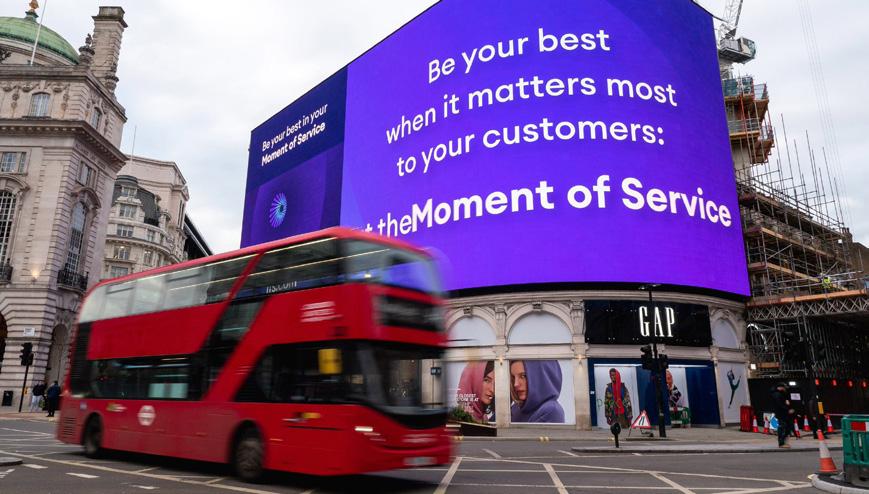
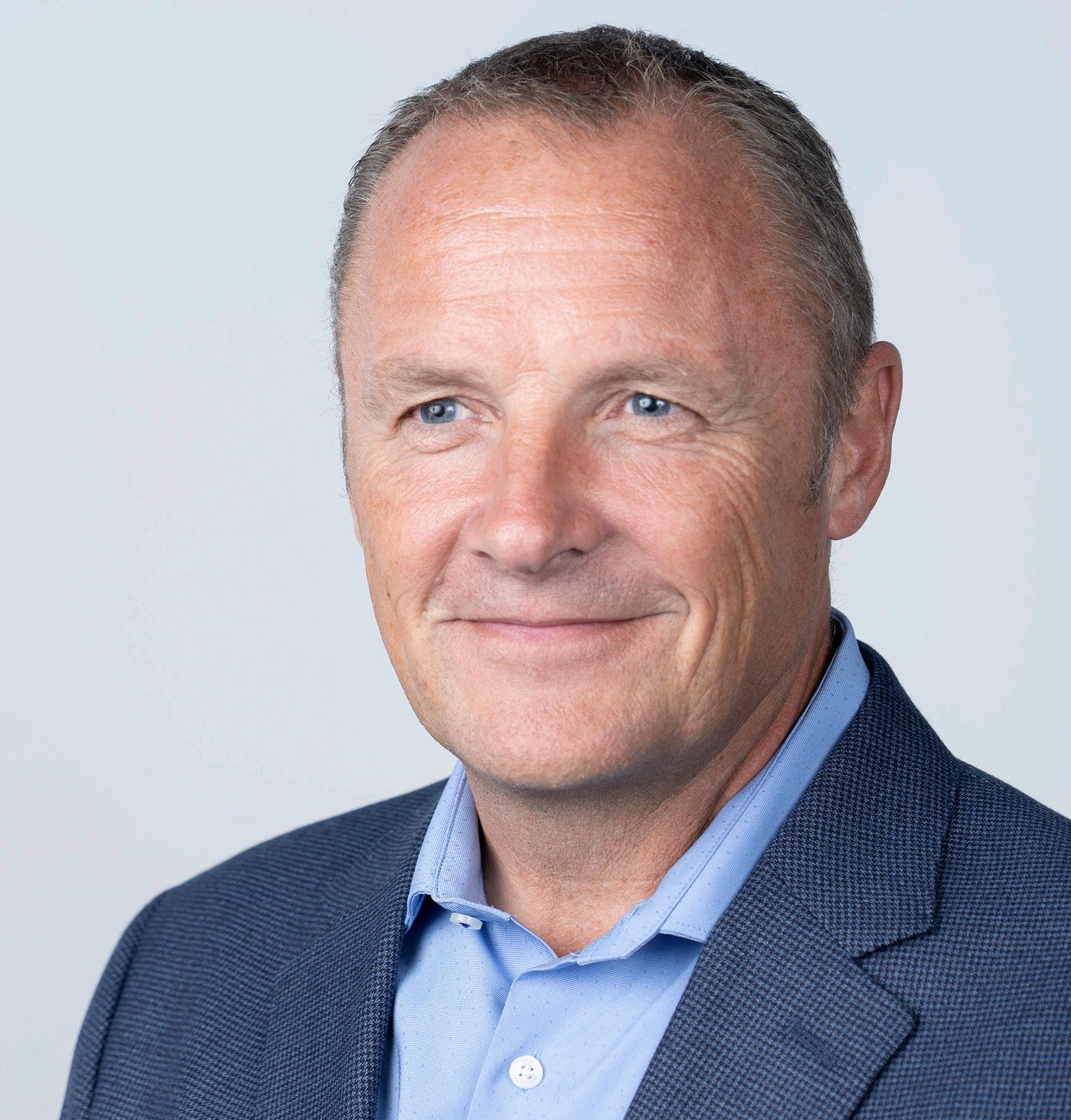

similar proportion of CEOs believe gaining competitive advantage in future will depend on who has the most advanced AI capabilities.
It seems safe to assume that those percentages will only increase in the coming months.
Christian Pedersen, Chief
ProductOfficer at IFS, believes the emergence of generative AI is “incredibly exciting” from a business perspective.
“Business is all about productivity, and generative AI is a powerful tool to increase productivity,” he says. “Everyone is always looking for ways to improve, which is why generative AI has gained so much traction so quickly.”
Pedersen points out that, while gen AI is limited to the data it’s trained on and the prompting skills of the user, it has the power to quickly analyse and synthesise information much faster than any human can.
Recent research carried out by Accenture found almost threequarters (73%) of global companies are prioritising AI over all other digital investments, with an immediate focus on improving operational resilience in an unprecedented environment.
The professional services firm found 90% of business leaders were applying AI to tackle aspects of operational resilience, which spans data-driven capabilities, such as finance (89%) and supply chain (88%), as well as experimentation with generative AI.
Meanwhile, IBM’s report, ‘CEO decision-making in the age of AI’, demonstrated clearly the growing importance of artificial intelligence and the extent to which CEOs believe the emerging technology can influence the future running of their businesses.

Three-quarters of surveyed chiefs asserted that competitive advantage over the coming years will depend on who has the most advanced generative AI capabilities, while 69% see the broad benefits of generative AI across their organisation.
Already, 43% of CEOs are using generative AI to inform strategic decisions.
RESEARCH DEMONSTRATES AI PRIORITISATIONGENERATIVE AI IS LIKELY TO OFFER TOOLS THAT HAVE THE POTENTIAL TO CREATE ENORMOUS VALUE, OPENING NEW FRONTIERS IN CREATIVITY AND INNOVATION
Greg Kelly Senior Partner and Global Leader of Growth, Marketing and Sales Practice, McKinsey & Co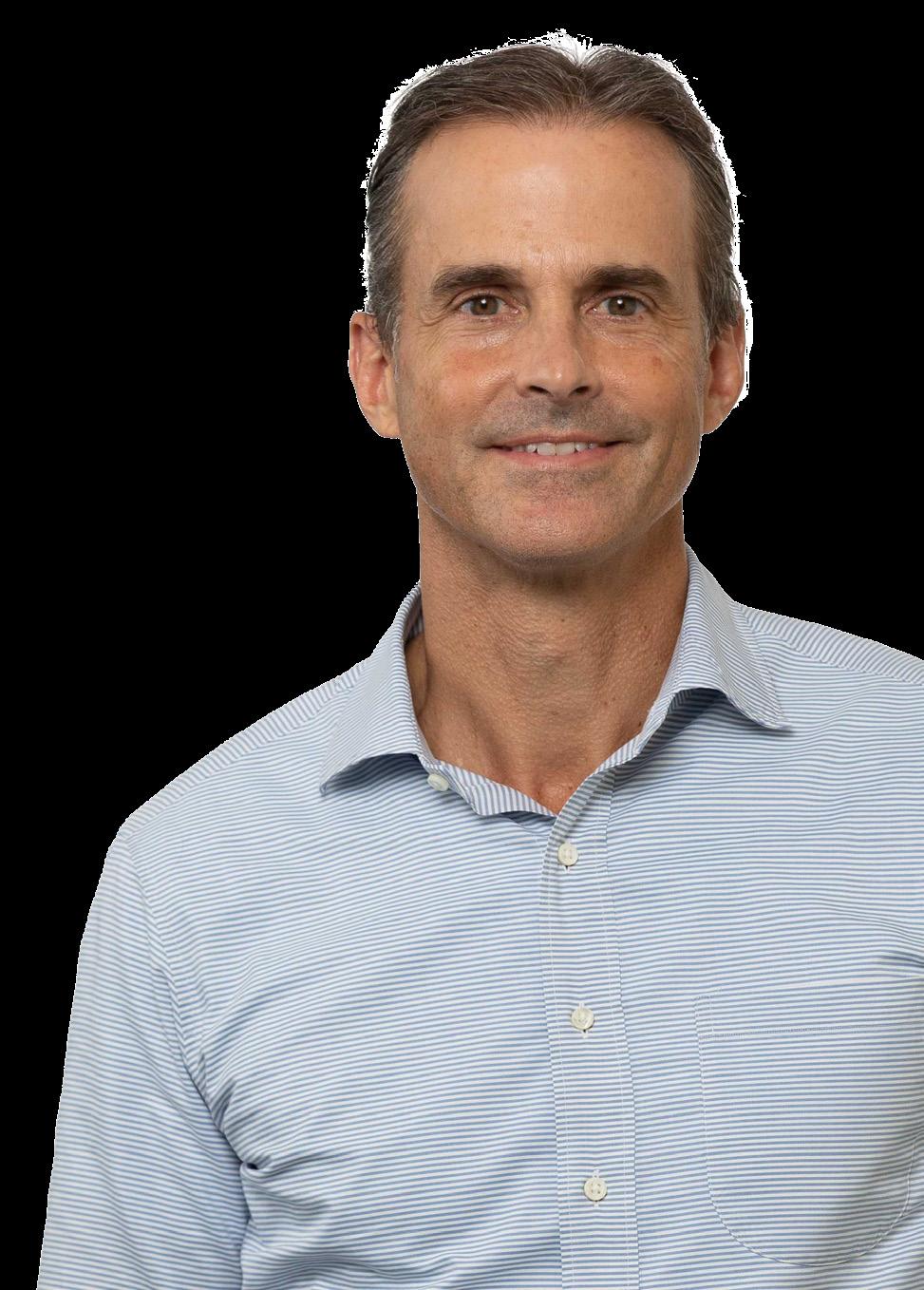
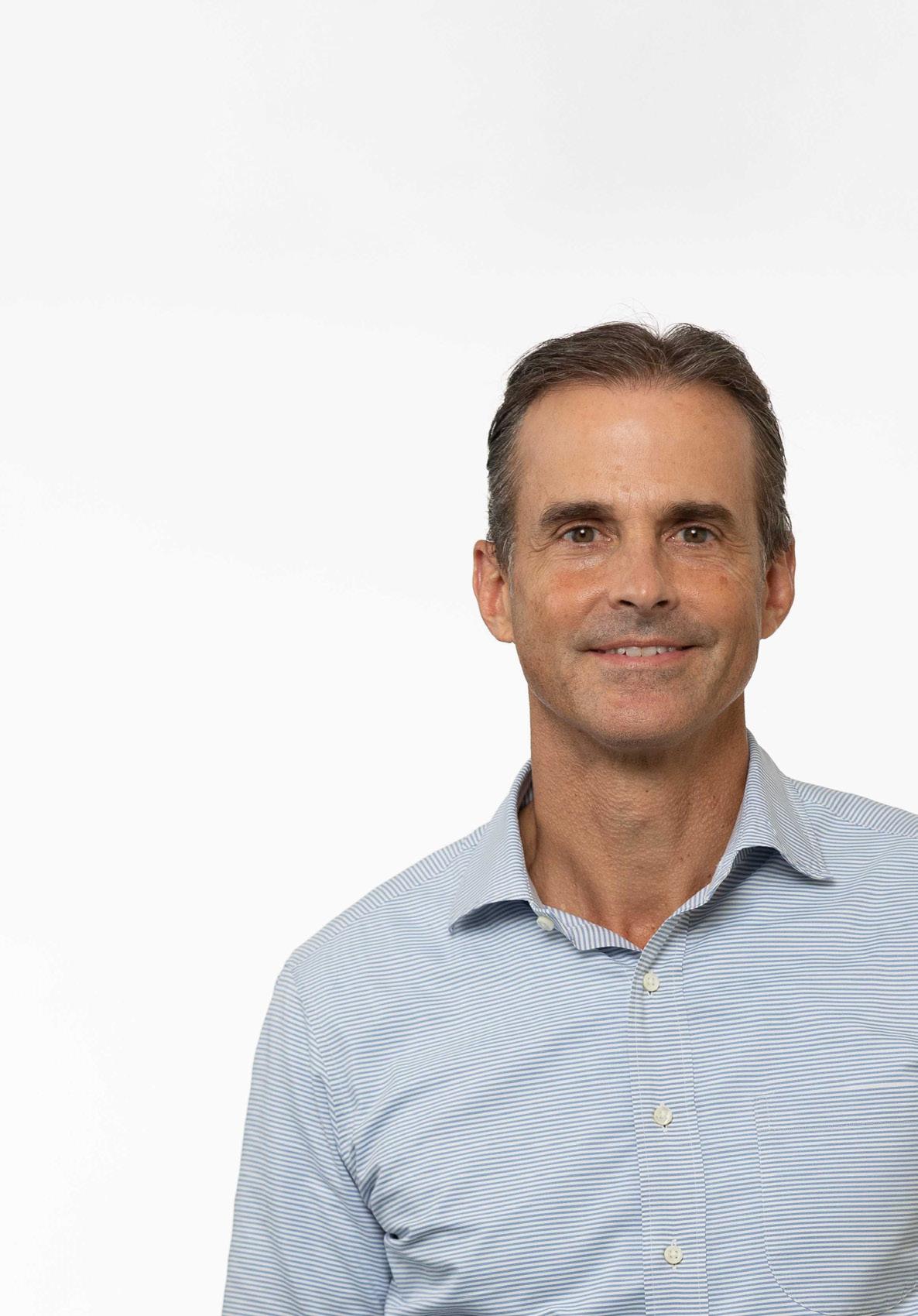
For businesses this has all kinds of applications, from drafting quick paragraphs for a blog post to creating sample operational strategies.
“Of course, it all needs to be verified and approved – and probably heavily edited –by a person before it goes into production,” Pedersen continues, “but it’s a great starting point for shaving down the time needed to complete a task and freeing up that worker to focus on more important things.”
Kelly digs deeper into gen AI’s uses, highlighting the extent to which it can help marketing and sales teams. This includes rapidly digesting mountains of data to hyper-personalise customer interactions, identifying growth opportunities and suggesting opportunities for upselling.
“For all businesses,” Kelly adds, “generative AI is likely to offer tools that have the potential to create enormous value, opening new frontiers in creativity and innovation as the technology develops and matures.”
As one would expect, the rise of generative AI has proved overwhelming for some leaders who remain unsure about taking such a bold, transformational step.
Sanz Sáiz believes there are four key steps for overcoming such hesitation:
1. Assess where you are
2. Reset your ambitions
3. Define the roadmap for transformation
4. Manage risk
“I think we have reached a point of no return, as industries like health and education will be reshaped forever,” she adds.
“We will see new standards in terms of efficiency and new business models emerging. It will be difficult to remain relevant without embracing these technologies.”
Kelly, meanwhile, contends that business leaders should consider the exploration of generative AI as a ‘must’, rather than a ‘maybe’.
“Generative AI represents a leadership moment,” he goes on. “It can create value in a wide range of use cases, while the economics and technical requirements to start using it are not prohibitive.”
The message from Pedersen is to gain plenty of hands-on experience as soon as possible.

“It might seem overwhelming now, but many industries will be able to find substantial benefits from embracing generative AI,” he concludes.
“The technology is still in its early days, so don’t be afraid to experiment – the key is finding out where it does and doesn’t work well to see how it best fits your own business and working practices.”
The Global FinTech Awards 2024 will be celebrating the very best in Fintech with the following categories:
Digital Banking Award
–PayTech Award
–
Digital Currency Award
–
FinTech Award
–InsurTech Award
–
Sustainable FinTech
–
FinTech Technology Award

–
FinTech Consultancy Award
–
Future Leader Award
–
Executive of the Year Award
–
Project of the Year Award
–
Lifetime Achievement Award

Sustainability must no longer be an after-thought, but a central component of corporate strategy and the decision-making process at boardroom level
WRITTEN BY: TOM CHAPMANAll experienced leaders are well accustomed to outlining company-wide strategies, taking into account growth trajectory, expansion plans and financial performance.
These days, however, there is perhaps one point of strategy which is considered to be more important than anything else: sustainability.
The modern-day CEO must prove to employees, customers and shareholders alike that their business plans are being delivered in sustainable fashion; they must strive to find the perfect balance between profit and planet.
Much like technology, we have reached a point where sustainability can no longer be considered a siloed function, but should instead be factored into the decision-making of every division and department.
Big-name organisations which once drew praise for the ambitiousness of their sustainability targets are now being
actively judged on whether their efforts have been successful.
Clearly, good intentions do not always translate into discernible action, as was demonstrated by recent research carried out by Heidrick & Struggles. While two-thirds (66%) of directors agreed that sustainability considerations should be fully integrated into business strategy, only 38% said it was happening in practice.
Furthermore, even though around half of surveyed leaders thought sustainability should be entirely integrated into the board agenda, investment decisions and asset allocation, less than 30% have seen this coming to fruition.
Alice Breeden, Co-Leader of the European CEO and Board Practice at Heidrick & Struggles, says: “This summer we had the hottest July on record, mixed with intense rainfall and flash flooding in multiple regions around the world, so it is clear that,
collectively, we need to up our game – citizens, governments and businesses.
“We need to put sustainability at the heart of everything we do, and that’s what senior executives and board members are telling us, too. There is clearly a gap between ambition and execution that needs to be bridged.”
ABB: Leading the sustainability charge One business leading the way from a sustainability perspective is ABB, a technology giant whose activities encompass multiple sectors.
The company’s purpose says it all: to enable a more sustainable and resource-efficient future with our technology leadership in electrification and automation.
“Sustainability is embedded in everything we do as a company,” adds Stefano Cinquina, a Global Business Line Manger for Pulp & Paper at ABB. “It is the driving force that guides our actions every single day.”
ABB continues to set the standard in tech development and sustainable innovations that allow industries to make meaningful progress, supporting customers with both rapid and gradual transformations.
From the rapid adoption of digital tools for remote work, to the shift from fossil fuels to clean energy sources, the organisation remains dedicated to combining automation, carbon neutrality, electrification and social progress.
WE NEED TO PUT SUSTAINABILITY AT THE HEART OF EVERYTHING WE DO, AND THAT’S WHAT SENIOR EXECUTIVES ARE TELLING US
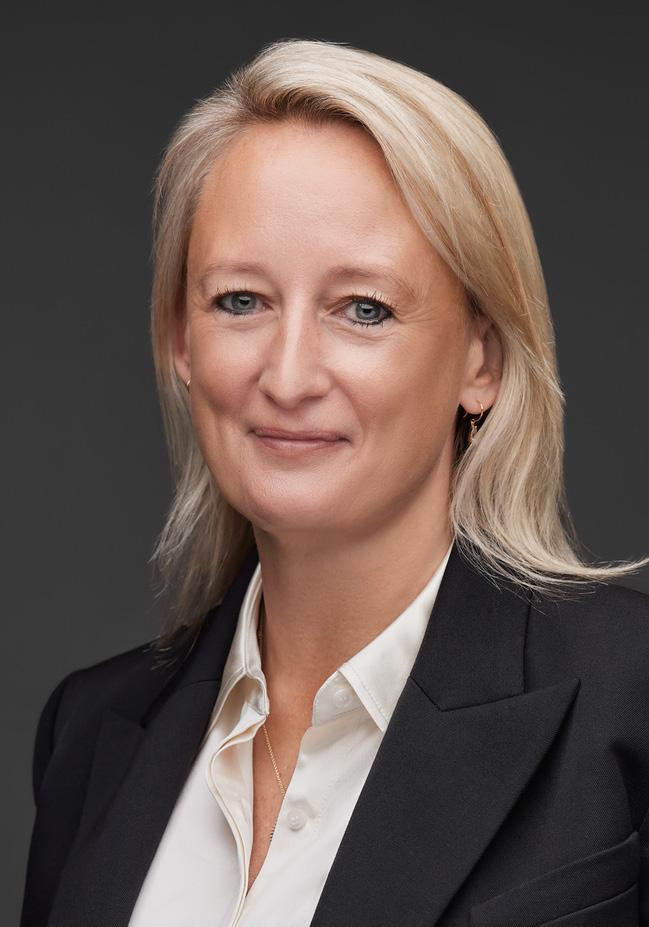 Alice Breeden Regional Managing Partner, CEO & Board, Europe and Africa, Heidrick & Struggles
Sherif Elsayed-Ali CEO and Co-founder of Carbon Re
Alice Breeden Regional Managing Partner, CEO & Board, Europe and Africa, Heidrick & Struggles
Sherif Elsayed-Ali CEO and Co-founder of Carbon Re
Like countless other well-intentioned businesses, ABB has a sustainability strategy taking it to 2030, which includes a commitment to achieving carbon neutrality – not only within its own operations, but across the value chain.
Efforts are also ongoing to actively advance the circular economy by promoting the concept of circularity in all its products and services. The aim is to extend product lifespan, optimise resource usage and embrace recycling initiatives, thus minimising waste and maximising resource efficiency.
ABB has 130 years worth of experience in forming partnerships with key industrial players to drive progress, and Cinquina insists there is little difference when it comes to the sustainability agenda.
“The customers we engage with are not working in silos trying to solve operational practices for greater efficiency themselves,” he adds. “It takes a team mentality. No single organisation can do this alone and we’re there as a technology leader with some of the answers.
“No silver bullet exists to make operations sustainable, so collaboration across organisations is key to accelerating progress in this space.”
AI’s role in industrial decarbonisation
Accelerating sustainability progress is something which sits at the very heart of Sherif Elsayed-Ali’s business, Carbon Re, an artificial intelligence and climate tech specialist spun out of Cambridge University and UCL.

Carbon Re’s aim is to help solve the fundamental challenge of industrial decarbonisation, harnessing the power of AI to achieve previously out-of-reach fuel efficiencies and create a zero-carbon future using zero-carbon materials.
Elsayed-Ali, the company’s CEO and Co-founder, explains: “While a lot of companies focus on the energy side of things, we want to enable zero-carbon materials by transforming the way they are made and designed.
“It’s a big, ambitious goal, but we think the route that unlocks this possibility is applying the concept and ideas surrounding AI to the creation of materials.
“Industrial decarbonisation is often overlooked but, if you look at the big industries like cement, steel, glass, ceramic,
paper and bulk chemicals, they account for more than 20% of global emissions.”
Elsayed-Ali is in no doubt that AI has the potential to play an integral role in boosting the sustainability strategies of various organisations and, as a consequence, help slow down climate change.
“Logically speaking, there is probably no economic or social endeavour that cannot be augmented or made more efficient by combining with human intelligence with AI,” he adds.
“We are still at the tip of the iceberg, but it becomes super interesting when you start applying it to physical sciences.”

As the aforementioned research from Heidrick & Struggles demonstrates, there is still plenty of work to be done when it comes to businesses fully and credibly integrating sustainability into their strategy and board operations.
While this process is far from straightforward and carries a number of complexities, Breeden believes every leadership team has an
WE
ARE MADE AND DESIGNED

opportunity to forge an appropriate forward by following three key principles.
“Firstly, boards can further sharpen governance, including by reevaluating their makeup, ensuring deliberations take a long-term perspective and improving transparency on issues such as director selection and evaluation.
“Second, the board can carve out and better safeguard time for addressing how sustainability will impact the business, digging into short, medium and long-term issues that have the ability to affect their business directly and indirectly in the coming years.
“Finally, directors can personally model strong and consistent leadership behaviours when it comes to ESG, including by making tough, consequential decisions and bridging the divide between stakeholders on contentious issues.”
Heidrick & Struggles’ recent report, ‘The Role of the Board in the Sustainability Era 2023’, revealed a clear gap between intentions and prioritisation of the ESG agenda at boardroom level.
Researchers discovered that, despite greater societal expectations on businesses in terms of ESG, most boards do not feel financial pressure to act on sustainability issues. More than two-thirds of surveyed board directors said sustainability considerations had either “no effect” or a “slight effect” on financial performance.
Around 52% revealed they were acting on sustainability because it was the ‘right thing to do’, with a similar number (51%) citing legislative requirements.
Moreover, while a healthy majority (79%) of board members stated their board had a very clear understanding of the strategic opportunities and risks that come with increased sustainability, just 29% completely agreed they had sufficient knowledge to effectively challenge management on sustainability plans and ambitions and oversee their execution.
SUSTAINABILITY IS EMBEDDED IN EVERYTHING
DO
ABB.
When considering the future of shareholder value, we have to look at the history. You have to go back to the dark economic times of the 1970s – a period of global stagnation. Open the pages of The New York Times and you’ll find an essay by a certain Milton Friedman titled ‘The Social Responsibility of Business is

The concept of delivering value to shareholders as the primary purpose of a listed business has evolved, but it remains a key focus for CEOs.
SCOTT BIRCH
to Increase its Profits’. Economist Friedman effectively said that an organisation should show no regard or responsibility for anything other than its shareholders.
As happens with unpopular new concepts, it took a few years for other voices to echo Friedman’s doctrine, and it was not until the 1980s that the pursuit of
shareholder value at any cost became the new purpose for doing business.
And it worked. Shareholders made fortunes, and stock exchanges from New York to London to Tokyo all benefitted –right up to the 2008 financial crisis which pulled the plug on Gordon Gecko’s ‘greed is good’ mantra.

Or did it? Has the relentless pursuit of shareholder value at all costs gone out of fashion in the face of sustainability and societal pressures? And what difference does it make if you are a company based in Denver, Dusseldorf, Dubai or New Delhi?
One fact is certain – you cannot ignore the importance of shareholder value in this region. According to data from the World Bank, the market capitalisation of domestic listed companies in the US is US$40.72 trillion.
That makes the US by far the largest single nation when it comes to listed company value, more than three times China in second place globally with US$12.21 trillion.
Europe pales in comparison. The UK has listed companies worth US$2.97 trillion, Germany
US$2.28 trillion, and Spain US$759 billion.
This highlights disparity around the world, with some countries having more of a focus on government- or family-owned large businesses, making the concept of shareholder value redundant.
Shareholder value as important today as ever When it comes to shareholder value, Craig Bouchard wrote the book – literally. His New York Times Best Seller ‘The Caterpillar Way. Lessons in Leadership, Growth and Shareholder Value’ may have been written a decade ago, but “shareholder value will always be considered relevant, especially in our highly competitive investment arena,” the Founder and Executive Chairman of Ecolution kWh tells Business Chief.
“Exceeding shareholder expectations is the single most important performance indicator to attracting and retaining professional investors.”
Barbara Spitzer is the CEO of Two Rivers Partners and previously held a senior role at Accenture, and she agrees with Bouchard – to a degree.
“Shareholder value is always relevant, but with a few added features,” says Spitzer. “While shareholder value remains core, CEOs must balance it with other stakeholders' interests, including employees, customers, and the broader society.”
She says that the ‘polycrisis’ we continue to live through – pandemic, geopolitical tensions, global recession, technological disruptions – means that CEOs and boards are forced away from delivering just
Exceeding shareholder expectations is the single most important performance indicator to attracting and retaining professional investors
Founder & Executive Chairman, Ecolution kWh, LLC
Craig Bouchard is a Founder and Executive Chairman of Ecolution kWh, LLC. Ecolution technology converts kinetic energy in moving vehicles into an electric micro-grid. Craig is a New York Times Best Selling author of ‘The Caterpillar Way. Lessons in Leadership, Growth and Shareholder Value’. He founded three companies that achieved roughly US$1 billion of revenue within 18 months. His companies completed 12 acquisitions of metals companies and he has won three hostile proxy contests. Craig was a finalist for the prestigious Platts S&P CEO of the Year award in the global metals industries in 2018.

Barbara Spitzer is Founder and Chief Executive Officer at Two Rivers Partners. She works with Boards of Directors and CEOs to maximise profitability and innovation. Barbara drives growth, revenue, market share, and shareholder value optimising digitisation, sustainability, human capital management, diversity, equity, and inclusion. She has broad industry experience with highly transferable skills for analysing risk, understanding regulatory pressures, delivering stakeholder value, and driving business strategy execution, and financial performance.
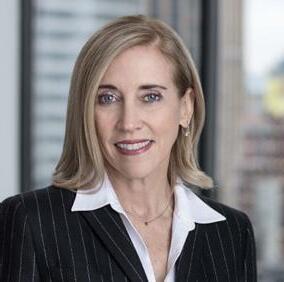
Sankar Sharma is Founder and CEO of RiskRewardReturn.com and mentors private traders and investors. Sharma is also the author of Stock Trading Made Simple and the creator of the ‘3R Methodolgy’ risk-based approach to trading global markets. He is an acccredited member of the UK Society of Technical Analysts.
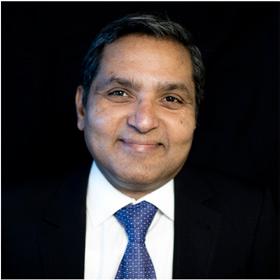

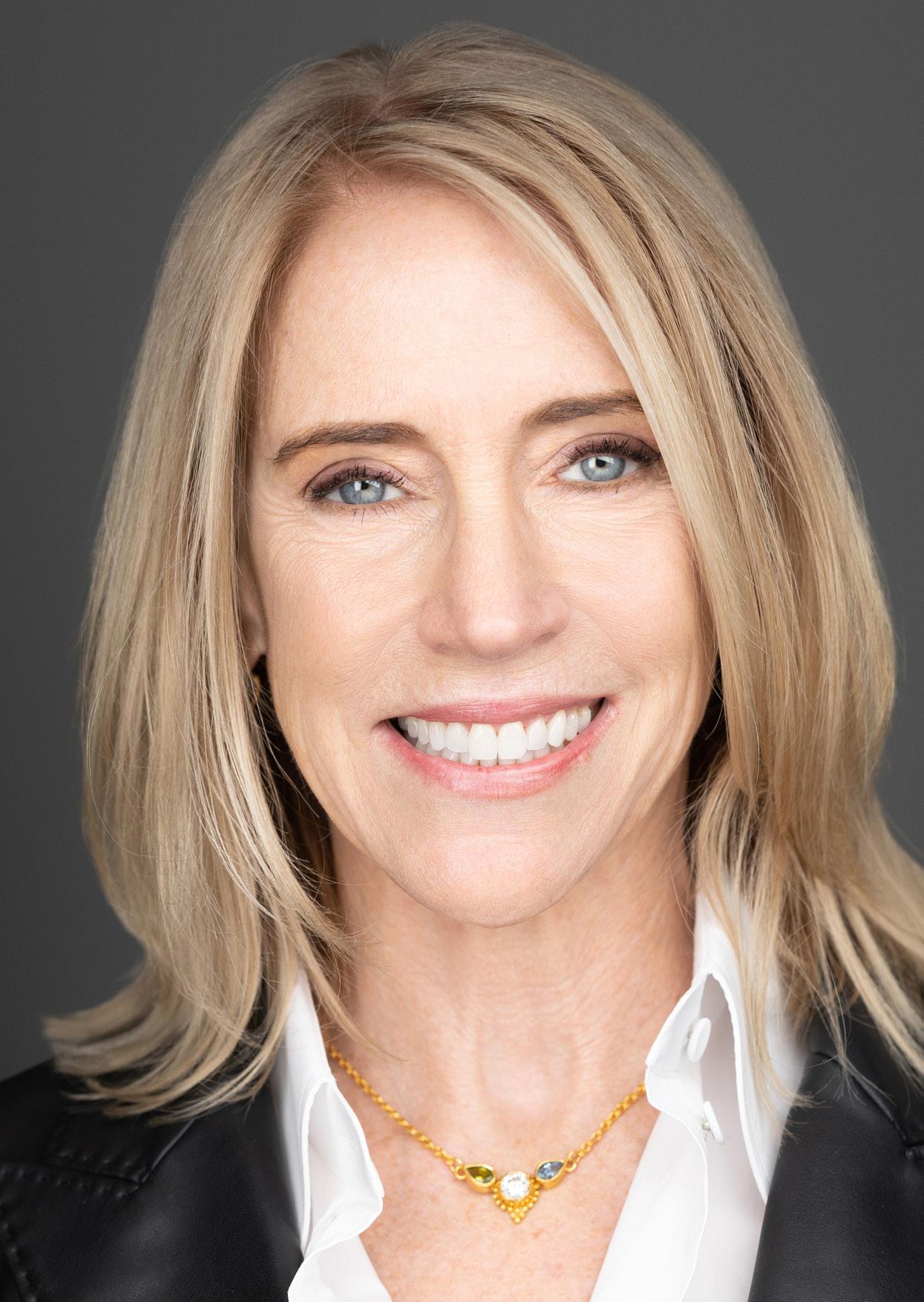
I truly believe we are witnessing the force of business used for positive change in the world
Barbara Spitzer
Founder and CEO, Two Rivers Partners
shareholder value but also stakeholder value.
“CEOs and boards are redefining shareholder value to include social and environmental; not as separate concerns because there is no long-term shareholder value without caring about employees, customers, communities, and other stakeholders expect and need,” adds Spitzer.
Bouchard says companies are adopting a more balanced approach, seeking to create value for all stakeholders rather than prioritising shareholders. Societal expectations when it comes to DEI, access to liquidity, and increased scrutiny of business practices have driven a change in perceived shareholder value. Some of these trends, he says, are not shareholder friendly.
The concept of shareholder value has certainly evolved significantly over the years, so does that mean it should still be the CEO’s main focus?
Yes, and no, says Sankar Sharma, founder and CEO
of RiskRewardReturn.com based in the UK.
“Shareholders continue to be a top priority for CEOs, but this role now includes a broader set of responsibilities,” says Sharma. “These include environmental, social, and governance (ESG) factors, climate change mitigation, long-term growth, and sustainability, promoting equality, reducing the gender pay gap, ensuring employee safety and well-being, community engagement, and customer care.
“Modern shareholders value these elements and expect CEOs to consider them. CEOs who embrace this broader focus are more likely to earn shareholder trust.”
Bouchard agrees that shareholder value should absolutely still be the main focus for CEOs but he believes that most leaders are getting it wrong, and that there should be a greater focus on allocating capital correctly.
“Even in the Fortune 500, I give a grade of C to over half of the CEOs I’ve observed or studied,” declares Bouchard.
As well as capital allocation, Bouchard says CEOs need to understand the risks as well as potential returns of the business model – by correctly assigning an internal rate of return (IRR) to every customer account and every project proposal that requires capital. The third piece of the puzzle is recruiting and maintaining a talented, hardworking and loyal workforce – which is, of course, hard to achieve.
There are lots of financial, strategic, operational, governance and transformational levers CEOs can use. As a human capital strategist, Spitzer says CEO skills are crucial. She says the non-technical shareholder value capabilities CEOs require are:
+ 360-degree view of strategy that includes both the normal
stuff (value drivers, markets, customers, competitors, products and services, financials, and risk) and the new stuff (human capital, environmental, societal, and governance)
+ Purpose-informed capital allocation and financial planning viewed that considers the impact investment decisions have on people and the planet, alongside profit
+ Ethical integrity and the ability to establish trust and credibility by exhibiting high standards and responsible leadership
+ Stakeholder engagement with a keen ability to listen, empathise, communicate, build relationships, and understand diverse perspectives
+ Adaptive leadership to navigate change, embrace innovation, drive transformation, and guide teams through uncertainty;
being open to new ideas, willing to challenge the status quo, and capable of making tough decisions
+ Understanding the ROI of diversity and inclusion and promoting a culture that values and respects differences
+ Continuous learning to stay on top of industry trends, regulatory changes, and best practices
“In addition, CEOs need fluency in cybersecurity, artificial intelligence, digital transformation, human capital management, and ESG, which present significant competitive, reputational and financial threats,” adds Spitzer.
The reasons for continuing to pursue shareholder value are clear, but leaders also need to marry this with responsible business practices, otherwise they risk losing out to more agile and enlightened organisations.

“I truly believe we are witnessing the force of
business used for positive change in the world,” says Spitzer. “I believe that corporations are, and can be, drivers of the systemic change needed to not only create commerce, support capitalism and build wealth, but to also make the world a more just, safe, healthy and welcoming place.
“This reminds me of Martin Luther King’s famous words, ‘The arc of the moral universe is long, but it bends toward justice’. The arc of redefining shareholder value is long but is bending toward making the planet a better place for people.”
Shareholders
Sankar Sharma Founder and CEO, RiskRewardReturn.com
continue to be a top priority for CEOs, but this role now includes a broader set of responsibilities
The Global Sustainability Awards 2024 will be celebrating the very best in Sustainability & ESG with the following categories:

Sustainability Strategy Award
–
ESG Program Award
–
Climate Change Award
–
Diversity & Inclusion Award
–Net Zero Award
–
Sustainable Supply Chain Award

–
Sustainable Technology Award
–
Sustainable Consultancy Award
–
Future Leader Award
–
Executive of the Year Award
–
Project of the Year Award
–
Lifetime Achievement Award

 WRITTEN BY: MARCUS LAW
PRODUCED BY: TOM LIVERMORE
WRITTEN BY: MARCUS LAW
PRODUCED BY: TOM LIVERMORE

Professional services leader Accenture has an extensive history of solving its clients’ toughest challenges by providing unmatched services in strategy and consulting, technology, operations, Industry X and Accenture Song.

As a leader in enterprise, application and systems architecture, Accenture’s Architecture Services division delivers strategic, tactical and operational enterprise architecture consulting services to help clients embrace their future.
Beginning his time with Accenture in 2009, Benjamin Zeller, Principal Director of Enterprise Architecture at Accenture DACH, describes the concept of enterprise architecture as the ‘tip of the spear’.
“We are a relatively small group of strategic technology futurists that work on the tip of the spear of the technology strategy and advisory business,” he comments. “We don’t start by talking about infrastructure or application or technology, but about the business, about capabilities, how the market works and how the industry mechanics function. Once we understand this, we use our experience and our skillset in a technology space to translate that into achievable and effective solutions.”
As Zeller describes, there are two major challenges to being a good enterprise architect. “One challenge is to combine deep technological understanding with the capability of strategic thinking and to tailor your communication to the audience and their specific needs,” he explains.
Accenture’s Benjamin Zeller on how enterprise architecture creates sustainable business value, facilitates collaboration and drives digital change

“Yes, we are always referring to the technology landscape but, when you talk to a team lead or an application owner, you need to do that in a completely different way compared to when you talk to the CFO

or the CEO. So that combination of interest and skillset for technology, and the ability to communicate tailored to a specific target group, and conceptualise in a specific context, is a very rare skill.”
“Of course, what I learned in university, 10 or 15 years ago, is still valid, but there are so many additional things that came along the way,” Zeller describes. “And of course, you have to be technologically fluent in those new aspects at the same time.
“That can only be achieved if you have an intrinsic interest in the topic and stay up to date with the latest developments.”
BENJAMIN ZELLER PRINCIPAL DIRECTOR ENTERPRISE ARCHITECTURE ACCENTURE
“The goal of Accenture is to help their clients be successful in what they’re doing now and be even more successful in the future”
TITLE: PRINCIPAL DIRECTOR
ENTERPRISE ARCHITECTURE
COMPANY: ACCENTURE
LOCATION: GERMANY
Benjamin Zeller is Principal Director of Enterprise Architecture (EA) at Accenture’s Technology Strategy and Advisory Enterprise Architecture job family and leads the EA Thought Leadership & Innovation department. He is experienced in strategic Enterprise Architecture
Management, tactical master planning, and operational IT architecture, particularly in the context of the implementation, transformation, and optimization of complex distributed system landscapes. Mr. Zeller has more than 15 years of international architecture experience across a variety of industries. Prior to this, he worked for nearly 10 years as a Software Engineer and Architect. He is a certified Accenture Master Enterprise Architectand AWS Solution Architect Associate.


AWS has partnered with Accenture for over 14 years through the Accenture AWS Business Group (AABG), which combines the resources, technical expertise and industry knowledge of both organisations into a unified team.

This unique collaboration enables enterprises to accelerate their pace of digital innovation and realise incremental business value from cloud adoption and transformation.

Built on over a decade of collaboration, the Accenture AWS Business Group (AABG) is dedicated to accelerating customers’ digital transformation and innovation
The Accenture AWS Business Group (AABG) combines the technical expertise and industry knowledge of Accenture and AWS through a unified approach.
Amazon CEO Andy Jassy coined an internal slogan “there’s no compression algorithm for experience”. Experience is at the core of the AABG; built on 14+ years of collaboration and more than 100,000 completed migrations to AWS cloud. Sara Alligood, Worldwide Leader of AABG at AWS, explains: “Our AABG team collaborates with enterprise customers to accelerate their digital transformation and innovation to deliver desired business value. “We provide customers with an end-to-end consultative approach, powered by joint investments in world-class accelerators, industry-proven expertise and digital skills.”

Continuous innovation requires strategic end-to-end planning, from boardroom engagement through to continued measurement and improvement.
The AABG brings use-case expertise to design and build end-to-end solution roadmaps unique to each client’s requirements.
To support this, the AABG recently launched ‘Velocity’, a continuous innovation engine that allows customers to choose and deploy
repeatable solutions aligned to their roadmap, using pre-configured blueprints to remove timeconsuming labour and cost-intensive work.
“If you think of Velocity as a foundational layer,” adds Alligood, “we’re then able to focus on industry-specific expertise to design and build the end-to-end solution that our customers need.”

The AABG continues to make significant investments into industry solutions built on real use cases, unique industry challenges and white space opportunities, developing more than 40 differentiated solutions across industries including insurance, energy and utilities, life sciences, banking and manufacturing. Each solution is developed to address niche or unique opportunities for customers to innovate within their industry and, because they are built on Velocity, can be deployed at speed. Alligood concludes: “Our portfolio of industry solutions covers all stages of a customer’s innovation journey, built by industry experts with those industry use cases at the heart of what we’re doing.”
Learn more


Accenture has been a leader in strategic enterprise, application and systems architecture for nearly 30 years, but as a company, it is, of course, much broader than enterprise architecture. “At Accenture, our goal is to help our clients be successful in what they’re doing now and be even more successful in the future by creating tangible value at speed and scale,” Zeller describes. “We want to help them stay relevant in the marketplace, keep up with change, find effective solutions for the problems at hand and implement precautionary measures to better anticipate risks and prevent them from becoming issues.”
Accenture achieves these goals by providing an extensive combination of
“Not only do you need to know the business and understand how it works, but you also need to have the ability to look at a complex problem from a holistic perspective”
BENJAMIN ZELLER PRINCIPAL DIRECTOR ENTERPRISE ARCHITECTURE ACCENTURE
strategic capabilities with its global network of technology expertise, strong ecosystem relationships and ability to innovate, uniquely positioning it to add sustainable business value for clients.
“We have the full spectrum of technological capabilities that are required to drive change and create sustainable business value, ranging from mission-critical core platforms to market-differentiating applications based on cloud-native services,” Zeller asserts. “We also have a broad variety of specialists in certain areas like Amazon, SAP and Microsoft, where we are one of the biggest implementation partners globally.”
Furthermore, Accenture offers a range of services where it acts as a continuous partner to its clients. “From finding ideas and developing concepts, to implementing

and operating, we offer our clients a full breadth of services. So, when I do a project as a strategist, I do it as a strategist and not because I want to sell the next great transformation project,” Zeller adds. My incentive is not the big projects that come my way, but the success and the persuasiveness of my concepts which I develop in close collaboration with my clients.”
As Zeller explains, Enterprise Architecture can be used to break down boundaries between business and IT – enabling organisations to reap the benefits.
“We work for large, multinational enterprises, and there you can still find those boundaries between business and IT.
In some cases, they don’t like to talk to each other and when they do, it’s not in a very effective way or even inefficient. Also, there are boundaries within IT between the developers and the operational staff.”
These boundaries, from Zeller’s perspective, are purely historically based and arbitrary. “In most cases, there’s no justifiable rational reason for those boundaries. In order to tear down those boundaries and make those boundaries disappear, you have to facilitate collaboration. And in order to facilitate collaboration, you have to communicate, and you have to enable people to understand each others’ concerns.
“Not only do you need to enable a business analyst on the IT side to understand the business strategy, but you also need to enable a business strategic decision maker to understand the decision mechanics of an IT platform. So, you have to ensure understanding on both sides.
“This requires being versatile and fluent as an enabler and facilitator of change, both as a good technologist and as a good business strategist.”

This, Zeller explains, is the core job description of an enterprise architect, to be fluent in both worlds and as he describes ‘ride the elevator’.
“If you imagine a company with a C-suite in the penthouse and the IT department maybe in the basement, and then the business department somewhere in between, enterprise architects are able to ride the elevator and they have the capability to exit the elevator on every floor. And they are also able to move around on that floor in a very free manner.
“They do have their own office somewhere. Mostly it’s on the floor where the IT department is, but they’re barely in their office because they’re constantly sitting
in other people’s offices to communicate, collaborate, bring together and enable people – riding the elevator up and down.
“I see this really as one of the key differentiators of enterprise architects because they bring together those two worlds in such a strong way.”
Partnership with AWS and the Accenture AWS Business Group
Accenture has a broad range of important partnerships and, as Zeller describes, its relationship with Amazon Web Services (AWS) is one of them.
“At Accenture, we are solution agnostic. We believe it is best for our clients to pick the best solution for their specific situation.
That, of course, requires that we work together with strong partners such as SAP, Microsoft, Google and AWS.”
Together with AWS, Accenture has constitutionalised an organisational unit known as the AABG – the Accenture AWS Business Group.
“AABG is an organisational unit comprising closely collaborating employees from both AWS and Accenture, focused explicitly on delivering AWS services to our clients where they fit best,” Zeller explains. “With its mature service offering, AWS and Accenture can provide our clients with excellent support

“We work for a number of large, multinational enterprises, and there you still find those boundaries between business and IT”
BENJAMIN ZELLER PRINCIPAL DIRECTOR ENTERPRISE ARCHITECTURE ACCENTURE
for numerous challenges, whether it is IT strategies or enterprise architecture projects. In addition to our strong partnerships, we also focus on building the skills within our Accenture universe ourselves.”
As a result of the partnership with AWS, the two companies have developed a number of offerings. One of these, the Velocity platform, is a continuous innovation engine that can help clients add new cloud innovations up to 50% faster. Security, repeatability, automation and flexibility are all built-in with industry-specific solutions at its core.

BENJAMIN ZELLER PRINCIPAL DIRECTOR ENTERPRISE ARCHITECTURE ACCENTURE
“From generating ideas and developing concepts, to implementing and then operating, we offer our clients a full range of services”
Providing companies with the speed, resilience, scale and agility to remain relevant, Zeller describes the platform as a ‘win-win’.
“The client gets the best benefit, AWS is being chosen as the long-term cloud partner and we as Accenture can offer the Velocity engine and the surrounding consulting skills.”
With organisations facing ever-increasing challenges globally, from pandemics to conflicts, Zeller believes that issues such
as sustainability will be a topic that continues to gain traction.
For example, Zeller describes the substantial increase in CO2 certificate prices, which represent the amount of emissions for which financial responsibility is assumed through support for climate protection projects.
“A few years ago in Central Europe, national governments debated price increases for those CO2 certificates that the governments thought would be significant. These discussions were intense, but then the pandemic struck, followed by the war in Ukraine. In a remarkably short time, the prices that many had feared would cripple the economy surged by 1.5 to 2 times. It’s a testament to how swiftly history can unfold and disrupt business. Many companies are now grappling with these changes, often unprepared because they hadn’t anticipated such shifts.”
As a result, ways must be found to implement holistic business and IT sustainability, enabling companies to have cost-efficient IT departments and run their company in a cost-efficient way.

“Sustainability can be approached on a micro level, focusing on relatively isolated optimisations that contribute a small piece to the bigger picture. However, to truly implement sustainability, a holistic perspective on a company and its ecosystem, the entire end-to-end value chain and the corresponding sustainability drivers is required.
“If you ask the questions of how to make IT greener, how to make internal business operations greener and how to make supply chain or even suppliers
greener, you need specific technological solutions at hand. This is what enterprise architects bring to the table because they have an overview of available solutions and know what works and what doesn’t.
“Business fluency and an understanding of how a business works, as well as the ability to have a holistic perspective on a complex problem, is crucial. It is important to not only look at one aspect, but also consider how that aspect might influence another aspect. That is also something that enterprise architects are trained for like nobody else. Therefore, I believe that the success of holistic sustainability will be a discipline of enterprise architecture.”
Another widely debated topic is the impact of generative AI. When it comes to AI, Zeller explains that there are two major questions to ask.
“First thing, how can we use generative AI to be faster and more efficient for our client? That is something we can answer after a relatively short time in the future thanks to GenAI.
“And then, there is the question of how we can use generative AI to be more creative, more innovative.
“Those questions help us to see what’s there already, get a holistic perspective and get something new out of it. I don’t yet have the complete set of answers to how generative AI is going to help us there, but it’s going to be relevant for our work as it is about being creative, being innovative and solving the intellectually demanding problems between technology, business and communication that others have a hard time solving.”



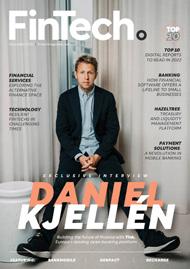
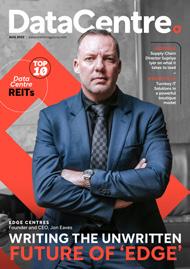

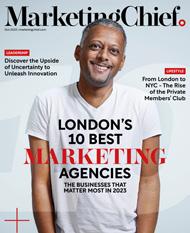


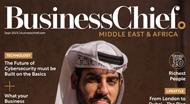

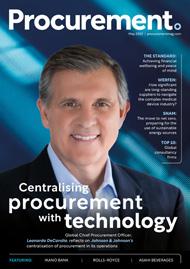

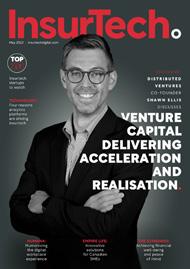














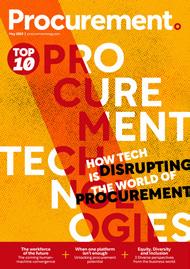








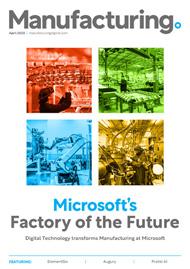









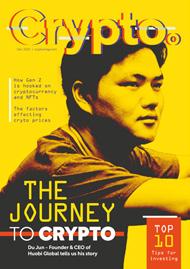










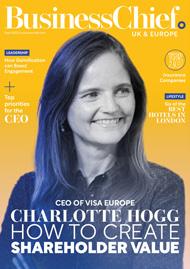


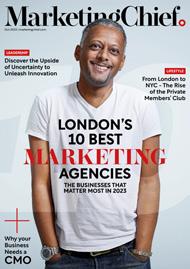



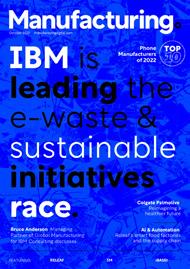


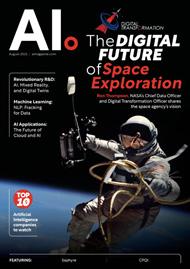
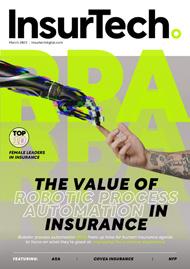







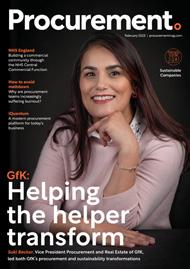

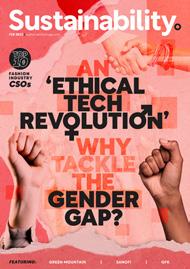









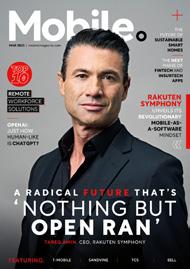


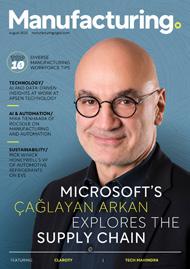




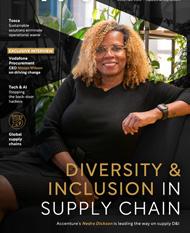





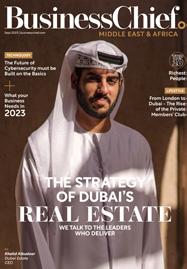
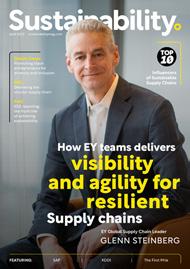







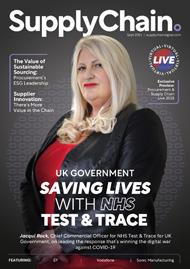






Countless airlines have ditched their longhaul first-class option, prompting fears from some quarters that this definition of luxury could be dying out
WRITTEN BY: TOM CHAPMANIt was once upon a time that flying in first class offered a certain level of luxury that many could only dream of experiencing.
For passengers there was something oh so special about enjoying the very finest food and drink that money could buy from the comfort of their own private quarters, safe in the knowledge that the standard of service would be nothing less than exemplary.
The fact this was all happening at 35,000 feet succeeded only in making the whole thing even more exciting.
It must be pointed out that flying in first class remains an exclusive pursuit and those standards have continued to improve, with carriers constantly competing with each other in a never-ending game of one-upmanship.

What has changed, however, is that air travel’s decades-old definition of luxuriousness seems to be slowly dying out –at least in name, anyway.
Over the past 20 years, first-class travel has gradually been disappearing from the longhaul market, with various airlines focusing their attention elsewhere and spending their money more wisely.


British Airways, for example, had more than 550,000 first-class seats across its fleet in 2008; by 2018, that figure had plummeted by about 100,000. In fact, BA was responsible for a pretty seismic moment in the context of air travel when it completely dropped first class from its A350 aircraft. Instead, the company invested in its long-haul business class cabin, Club World which, to all intents and purposes, could be considered a ‘first-class’ offering.
A further significant moment for the industry came in 2022, when American Airlines announced it was scrapping first-class seats on international flights, becoming the last of the big three US carriers to do so.
United Airlines had already phased out longhaul first class in the mid-2010s and Delta did the same several years prior.
Vasu Raju, CCO at American Airlines, explained at the time that customer bookings had dwindled dramatically.
Turkish Airlines and Qatar Airways are among scores of other carriers to have ditched the service.
To get to the bottom of the decline of firstclass international travel, it’s pretty much impossible to look past the extraordinary evolution of airlines’ other premium offerings.
BA’s game-changing introduction of lieflat seating in business class at the turn of the century was a sign of things to come and, while a few differences remain, the modern-day business class offering resembles something similar to our traditional idea of first class.
“From an economic perspective, first-class travel hasn’t been profitable for many airlines,

even before COVID-19,” says Philipp Bensel, Partner and Global Aviation Lead at Kearney.
“From a product perspective, business class has become more competitive. Flat, comfortable beds have been one of the main features of first class travel, especially for executives, but this has become standard in modern business class, accompanied by improved food and service.”
Regardless of the individual’s wealth, one has to wonder why anyone would pay thousands of dollars more to sit in first class, or the equivalent, when they can expect to be treated like royalty in business.
David Huttner, who has three decades of airline industry experience behind him and now serves as Commercial Aviation Lead at PA Consulting, agrees, pointing out that the gap between classes is narrowing.
“High-quality, flat-bed business products have become more ubiquitous among longhaul carriers, resulting in a differential product quality that may not be as stark as it was before,” adds Huttner, who previously worked
for the Virgin Group and was a Director at Virgin Blue (now Virgin Australia).
“For certain routes and markets there is only a limited number of people with the budget to justify the exceptional service offered in first class.”
While in Europe carriers like Air France and Swiss Air have sought to enhance their traditional first class seating, Bensel believes
the level of privacy and comfort offered these days by airlines like Lufthansa goes a long way towards explaining why passenger attitudes have changed.
Spending on first class increasingly tough to justify Organisations in all sectors have endured a punishing few years, leaving it up the finance function, among others, to assess where costs can be cut and sacrifices made.
Business travel remains an integral part of company operations, especially for those with clients and partners across the globe. But, while jetting abroad won’t be getting the boot altogether, executives shouldn’t be surprised at the prospect of being bumped down from first to business.

Some firms are even taking the drastic step of banning first class business travel as they try desperately to make savings.
“The pandemic and current economic climate are playing into the decision processes of both individual and corporate buyers,” says Huttner.
FLAT, COMFORTABLE BEDS HAVE BEEN ONE OF THE MAIN FEATURES OF FIRST CLASS, BUT THIS HAS BECOME STANDARD IN BUSINESS CLASS
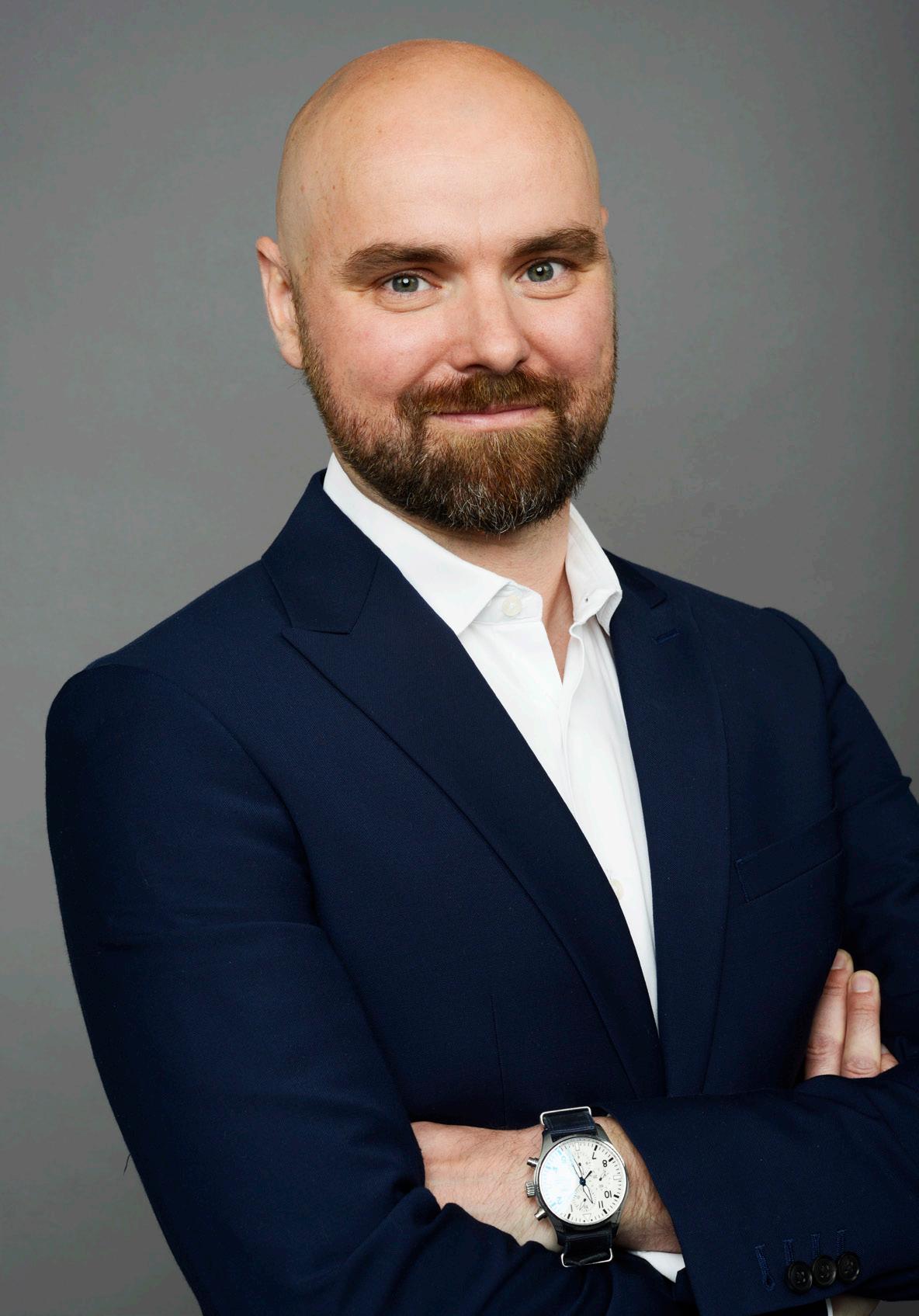 Philipp Bensel Global Aviation Lead, Kearney
Philipp Bensel Global Aviation Lead, Kearney
With just a single cabin, early passenger planes offered only one class of service which was relatively basic. Many airlines began to offer lower fares in the 1940s, but the difference here was often more to do with flight time than quality of service.
Changes to international regulations in the early-1950s signalled the true dawn of the first-class era, which came into being on the New York to London route. Then, in 1955, TWA introduced a mix of both first and economy seats on its Super Constellation craft.
Having two separate cabins was pretty much the norm by the beginning of the 1960s thanks to new planes like the Boeing 707, and standards went up a notch with the arrival of the 747 in 1969. A big focus was on-board lounges, which have largely been sacrificed these days in favour of increased privacy and comfort.
A third, intermediary class came into being in the mid-1970s, and initially drew some criticism before carriers got to grips with pricing, layout and the extent to which service should differ between cabins.
It wasn’t until the 1990s that lie-flat seating became commonplace in first class but, since then, the level of comfort and space has only improved. Suites, bars, wash facilities and double beds have continued to enhance the experience.
David Huttner Aviation Lead, PA Consulting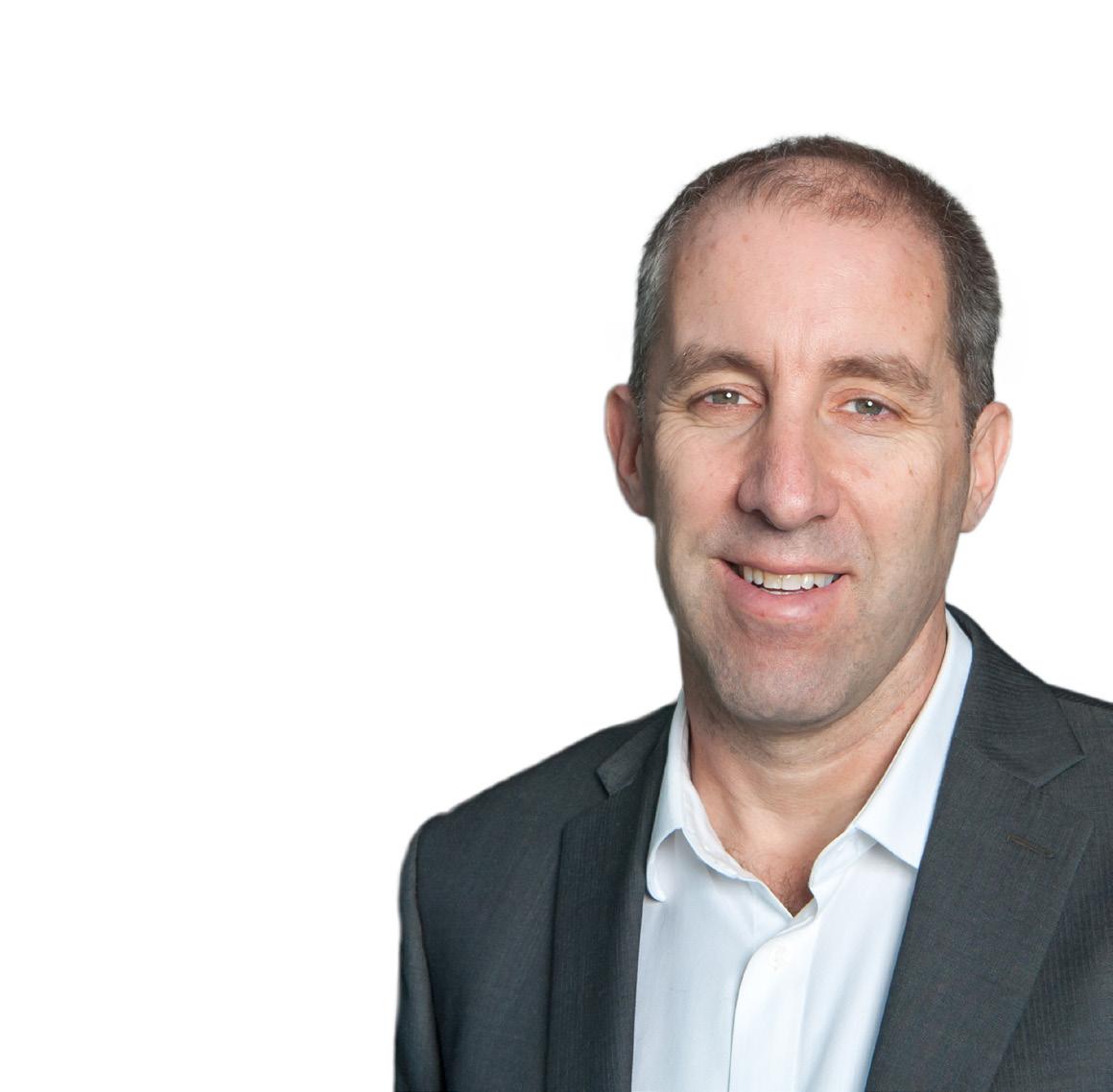
FOR CERTAIN ROUTES THERE IS ONLY A LIMITED NUMBER OF PEOPLE WITH THE BUDGET TO JUSTIFY THE EXCEPTIONAL SERVICE OFFERED IN FIRST CLASSCommercial
This shouldn’t be a problem for executives, he adds, given the work airlines such as Virgin Atlantic and KLM have put into enhancing their business class offering.
“It’s becoming increasingly difficult for executives to justify a first-class ticket,” Bensel continues.
“Flat-bed seating used to be one of the main reasons to argue for first class on intercontinental flights. High net-worth customers are looking for privacy; well-off leisure travellers want a great experience. Modern business class is trying to offer all the above.”

It’s difficult to imagine a world where that classic, transatlantic business route between London and New York no longer offers a first class option.
In truth, though, a ‘first-class’ service will likely always exist in nature, even if airlines are advertising it under a different name.
While COVID-19 led to a boom in private aviation, this trend carries with it the potential for plenty of negative press in today’s
environmentally-aware society. There remains a chance, therefore, that we could see highprofile figures reverting back to first class travel in the coming years.
“If more airlines that offer first class can recreate the ‘executive jet experience’,” adds Huttner, “the more likely they are to get a portion of significant figureheads and highprofile individuals back on scheduled flights.
“The glamour and convenience of walking off your own private jet now comes with greater PR risk for individuals concerned about their public image, so an elevated firstclass experience could be the answer.”
Bensel adds that there will always be a market for exclusive travel options, with the difference in future being that airlines will offer a more tailored service which improves the experience on the ground. In the air, carriers will continue to innovate when it comes to seating, catering and entertainment, as they always have done.
The reality is that the discerning business traveller will always be able to sniff out a firstclass experience if they really want it.
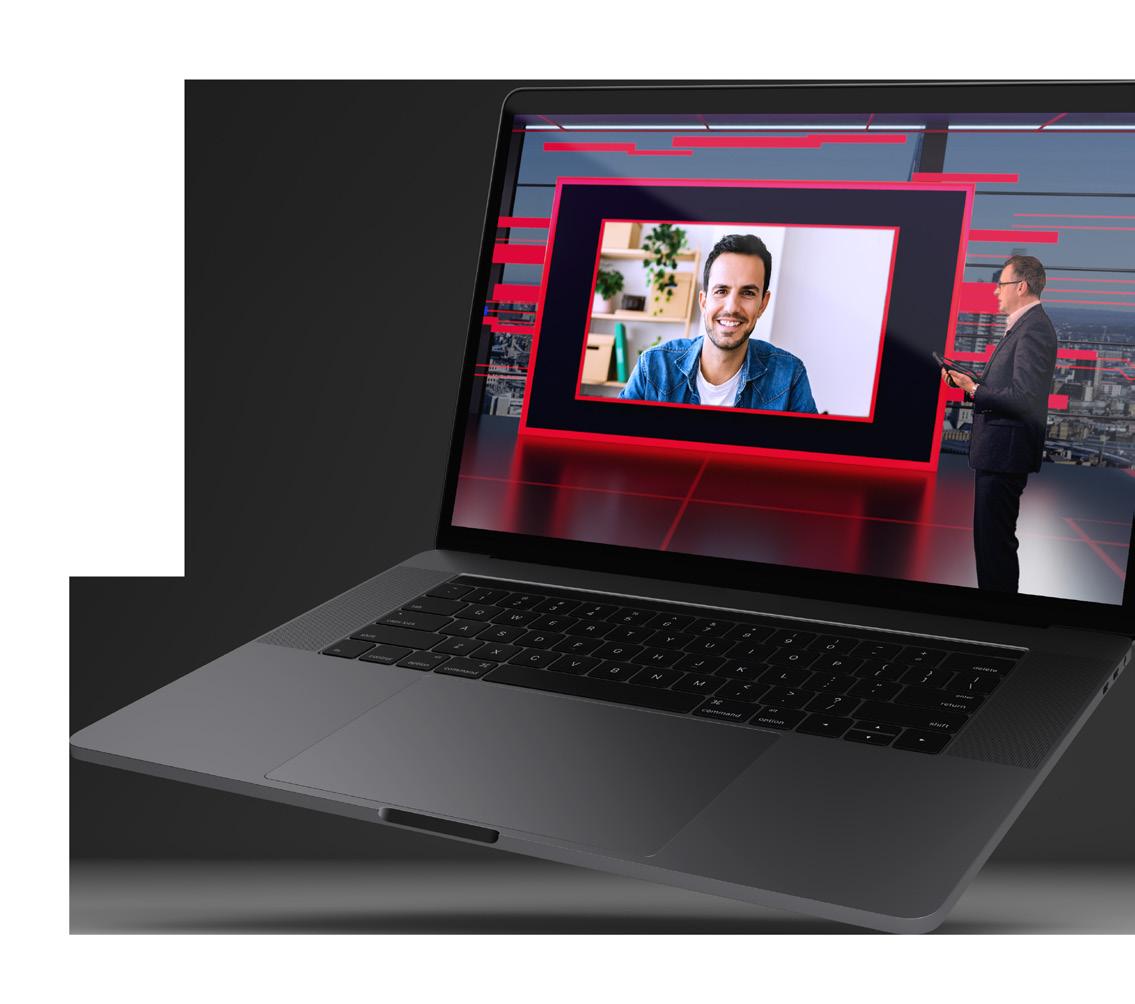

11 - 12 October 2023
1,000+ Virtual Attendees
2 Day Learning and Networking Event
30+ Acclaimed Speakers
6 Interactive Panel Discussions
SPONSORSHIPS GET YOUR PASS